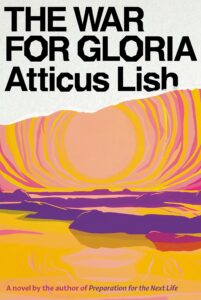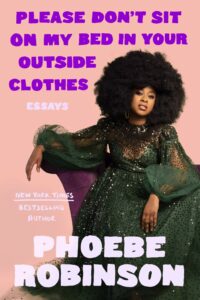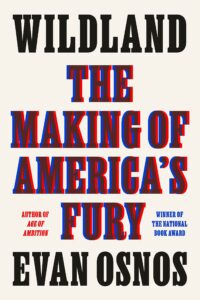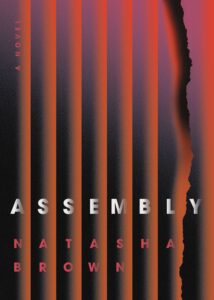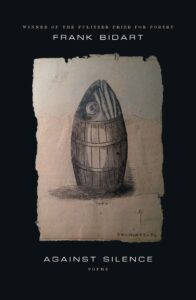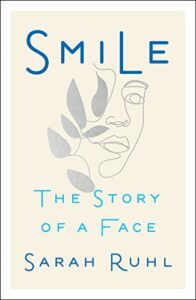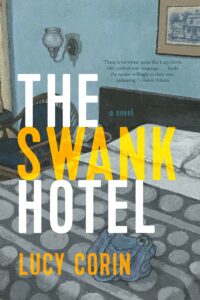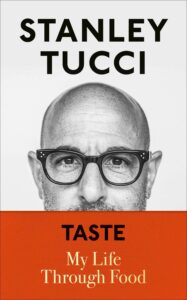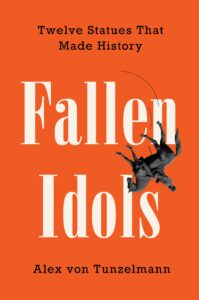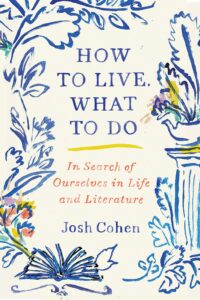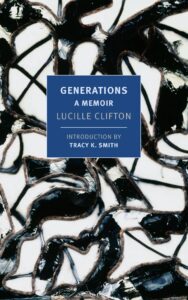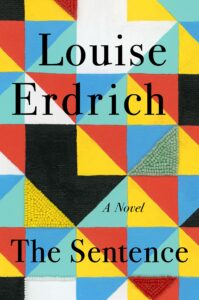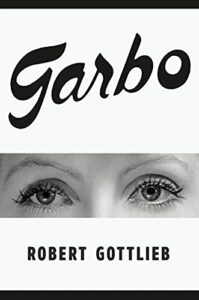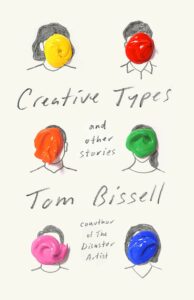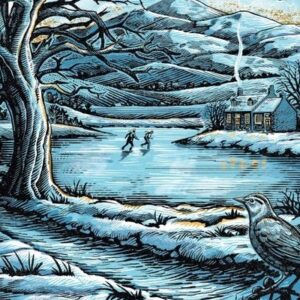
Lit Hub’s Most Anticipated Books of 2021, Part Two
222 Books We Want to Read Before 2022
If you can believe it, 2021 is already halfway over. That means you’ve burned your way through all the books from the first half of the year (right?) and are finding yourself hungry for more. Never fear, dear Reader. Lit Hub is here for you. For our second Big Preview of the year, we’ve picked out the 222 books being published between July and December that we’re most excited about. Some of these we’ve already read, and some we haven’t (yet), but we think you should probably know about all of them. (And probably a bunch of others that we missed, but hey—we had to stop somewhere.) So without any further ado, behold Literary Hub’s most anticipated books for the second half of the year below. See you in 2022.
JULY

Jan-Werner Müller, Democracy Rules
Farrar, Straus and Giroux, July 6
Political philosopher Jan-Werner Müller previously authored What is Populism?, a look at the ways that populism develops among a population and how contemporary society can navigate its effects. Now, with Democracy Rules, he aims at a deeper understanding of democracy by examining the role uncertainty plays in a democratic society. –from Lit Hub’s Summer Nonfiction Preview

Ewa Majewska, Feminist Antifascism: Counterpublics of the Common
Verso, July 6
Polish philosopher Ewa Majewska looks at the ways that feminist spaces resist the tide of fascism, in particular through the stories of labor movements and other justice movements in Poland and South America. The book also challenges the Western lens that dominates popular analyses of leftist politics in the US, looking beyond the West for answers to pressing political questions. –from Lit Hub’s Summer Nonfiction Preview
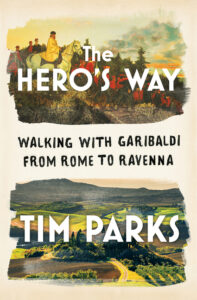
Tim Parks, The Hero’s Way: Walking with Garibaldi from Rome to Ravenna
Norton, July 6
Alarmingly prolific writer/translator/critic Tim Parks is back at it with an immersive travelogue tracing Giuseppe Garibaldi’s bold (some would say foolhardy) 1849 journey by foot across the Italian Apennines. Not only did the father of Italian nationhood lead his garibaldini in their retreat from the French army, he did so with his pregnant wife Anita. Parks, himself joined by his partner, Eleonora, recreates the historic journey (without the backdrop of war), keeping one eye on resonances of the past and the other on all the rich, local idiosyncrasies of contemporary Italian life. Every travelogue should begin from a conceit like this. –from Lit Hub’s Summer Nonfiction Preview
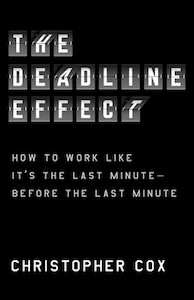
Christopher Cox, The Deadline Effect: How to Work Like It’s the Last Minute—Before the Last Minute
Avid Reader Press, July 6
Among the many things the last year has revealed is how strange the flow of time can be, particularly when formerly discrete parts of our lives—work and home—get blended into one, long stressful continuum. In The Deadline Effect, writer and magazine editor Christopher Cox has set out to better understand the way we respond to deadlines, how they can at once be stressful and clarifying experiences, and if there’s a way to trick ourselves into the latter without any of the former. –from Lit Hub’s Summer Nonfiction Preview
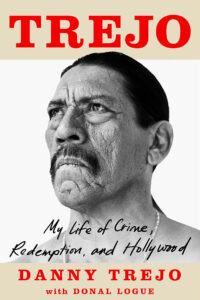
Danny Trejo and Donal Logue, Trejo: My Life of Crime, Redemption, and Hollywood
Atria, July 6
Before he found fame as “Hollywood’s favorite bad guy with a heart of gold” in his forties, Danny Trejo struggled with childhood abuse and heroin addiction, and spent years incarcerated. Trejo: My Life of Crime, Redemption, and Hollywood details his journey through it all. If anyone has earned the right to a Hollywood memoir, it’s Danny Trejo. To quote Bookmarks editor Dan Sheehan, “The man has lived a life.” –from Lit Hub’s Summer Nonfiction Preview
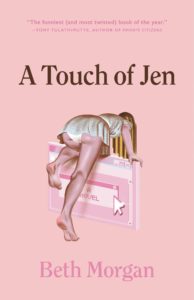
Beth Morgan, A Touch of Jen
Little, Brown, July 13
Um, holy shit. Or maybe it’s better to say: unholy shit. Whether you’re on a post-vaccine rampage or not, this novel will be the most fun you’ll have this summer: a millennial comedy of manners that, just at the point where these things usually fizzle and disappoint, takes A Turn and morphs into a weird horror novel. It’s like if Halle Butler fell asleep watching The Host (the Bong Joon-ho movie, not the Stephenie Meyer adaptation) and this is what she dreamed. I’m realizing that . . . sounds bad, but I don’t want to tell you any more, so look, just trust me on this one.
–Emily Temple (in Lit Hub’s Summer Fiction Preview)
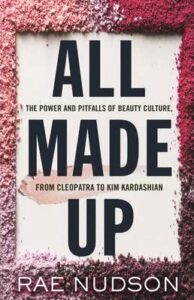
Rae Nudson, All Made Up: The Power and Pitfalls of Beauty Culture, from Cleopatra to Kim Kardashian
Beacon Press, July 13
Makeup has too often been dismissed as frivolous (read: feminine), though of course its political, economic, and cultural impact is enormous. In All Made Up, Rae Nudson considers the multifaceted power of makeup through the stories of Cleopatra, Marsha P. Johnson, and more. –from Lit Hub’s Summer Nonfiction Preview
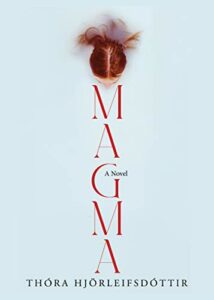
Thora Hjorleifsdottir, tr. Meg Matich, Magma
Grove, July 13
The dictionary defines magma as “extremely hot liquid located under the Earth’s surface.” It’s a fitting description for a book about the nuances—the small gestures, the big silences—of a relationship. This novel follows Lilja, a young woman dangerously in love. After all, he quotes dead philosophers and cooks vegetarian meals. (Who among us has not been Lilja?! It’s the relatability that tinges this novel with something sinister.) She plummets further into his life, determined to be good at love, becoming completely subsumed in the process. In beautifully spare prose, Thora Hjorleifsdottir maps their story: the topography of infatuation, the subtle shifts just below the surface, and the seismic ruptures of self. Magma is a powerful excavation of what can go wrong when you love another. –Katie Yee (in Lit Hub’s Summer Fiction Preview)

Kathryn Kolbert and Julie F. Kay, Controlling Women: What We Must Do Now to Save Reproductive Freedom
Hachette Books, July 13
Kathryn Kolbert and Julie F. Kay, lawyers and advocates for abortion rights, put the experiences of women and health workers at the center of this account of reproductive justice in America. Their observations are presented here alongside their writing on abortion as a human rights issue and legal strategies for protecting people’s ability to obtain it. –from Lit Hub’s Summer Nonfiction Preview
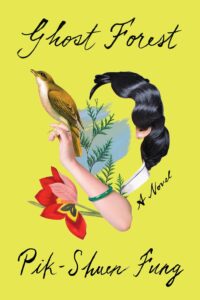
Pik-Shuen Fung, Ghost Forest
One World, July 13
Several summers ago, I read Zinzi Clemmons’ What We Lose in a single afternoon, and reading Pik-Shuen Fung’s debut felt like a welcome replica of that day. Grief is complicated enough, but the protagonist is grieving her “astronaut” father (he stayed in Hong Kong to work while his family immigrated to Vancouver) who was often critical of and confused by his westernized daughter. Composed of vignettes—some of which span generations, some of which made me laugh out loud, many of which gave me Very Strong Feels—Ghost Forest is the tender/funny book we can all appreciate after a hellish year. –Eliza Smith (in Lit Hub’s Summer Fiction Preview)
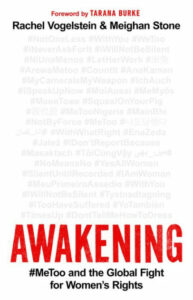
Rachel B. Vogelstein and Meighan Stone, Awakening: #MeToo and the Global Fight for Women’s Rights
PublicAffairs, July 13
Several years after the #MeToo movement inspired an outpouring of women’s stories, and a series of collective reckonings in fields long dominated by men, Awakening takes stock of the movement in Brazil, China, Egypt, Nigeria, Pakistan, Sweden, and Tunisia. Tarana Burke, who founded the movement, authored the foreword for this recent history of the fight for gender equality. –from Lit Hub’s Summer Nonfiction Preview
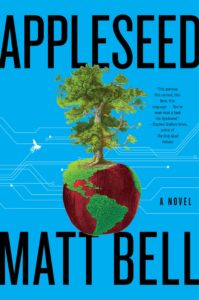
Matt Bell, Appleseed
Custom House, July 13
Do you like apples? Well here’s an epic-but-intimate hybrid of historical fiction, fairy tale, and cli-fi thriller that spans over a thousand years and asks disquieting questions about manifest destiny, climate change, civic duty, and human stewardship of the natural world. How do you like them apples? Over the course of 600 pages, we’re transported from the budding apple orchards of 18th-century Ohio to the frozen tundra of post-snowpocalypse America. Bell’s terrifying yet deeply humane novel of ideas is both an awesome work of imagination and a stirring ecological call-to-arms—a reminder of what the best genre-bending books can achieve. –Dan Sheehan (in Lit Hub’s Summer Fiction Preview)
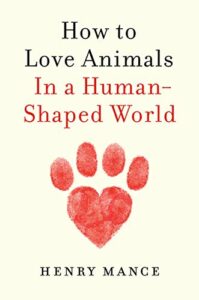
Henry Mance, How to Love Animals: In a Human-Shaped World
Viking, July 13
In a world where sustainable habits are a necessity and conservation more important than ever, Henry Mance asks how humans can reform their relationship to animals, with input from activists, politicians, and those working in the food industry. Mance investigates how this relationship manifests in a number of human practices, including hunting, the creation of zoos, and our interactions with undeveloped spaces, building a clear call for change in the way we relate to the natural world. –from Lit Hub’s Summer Nonfiction Preview
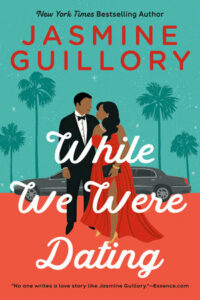
Jasmine Guillory, While We Were Dating
Berkley, July 13
Jasmine Guillory has established a track record of writing swoon-worthy contemporary romance that spotlights people of color; her endearing heroes and heroines grapple with race and racial identity in a way that feels true-to-life rather than ABC after-school special. While We Were Dating centers on Ben Stephens, a driven advertising exec, and Anna Gardiner, an in-demand movie star. (Some readers may recognize Ben as Theo’s brother from The Wedding Party.) Against the glittering backdrop of Los Angeles, Ben and Anna find themselves falling for each other. Their courtship is the stuff of classic rom-coms, with fake dating schemes, miscommunication, and delightful banter. Once again, Guillory offers a charming romance grounded in reality. There are also frank discussions of mental health issues and attending therapy. –Vanessa Willoughby (in Lit Hub’s Summer Fiction Preview)

Sarah Everts, The Joy of Sweat: The Strange Science of Perspiration
Norton, July 13
Despite its ubiquity—and biological utility!—there remains a taboo around sweat. The Joy of Sweat considers sweat not only in a biological context (why is sweat salty?), but in a historical one (how did antiperspirant become a multi-billion dollar industry?). After all, the only way to fight a taboo is with cold (or hot), hard facts. –from Lit Hub’s Summer Nonfiction Preview
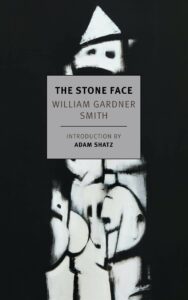
William Gardner Smith, The Stone Face
NYRB, July 13
William Gardner Smith started writing The Stone Face in 1961 while living in France, at a time when ongoing tensions over the Algerian War meant that anti-Arab racism and violence suffused every part of daily life. The book, based on his firsthand observations, follows a young man who, like several other Black writers of the era, seeks refuge from the racism of Jim Crow America by moving to Paris; once there, as he observes the treatment of Arabs in his midst, he begins to question his own complicity in an anti-Arab society. A complex exploration of power and justice, the book—which also includes one of the first published accounts of the Paris massacre of 1961—was first printed in 1963 and is being reissued this summer from NYRB, not a moment too soon. –Corinne Segal (in Lit Hub’s Summer Fiction Preview)
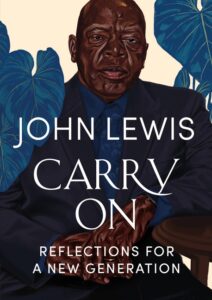
John Lewis, Carry On: Reflections for a New Generation
Grand Central Publishing, July 13
Congressman John Lewis, who died in July of 2020, was a proponent of “good, necessary trouble.” In this collection from the late activist and politician, Lewis offers timeless advice for present and future generations. Carry On, the result of conversations with his editor at Grand Central, Gretchen Young, immortalizes the wisdom of a master orator and visionary. –from Lit Hub’s Summer Nonfiction Preview
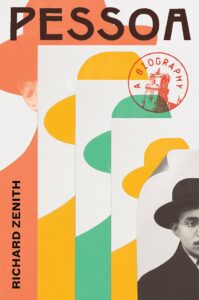
Richard Zenith, Pessoa: A Biography
Liveright, July 13
How to write a biography of a writer who created multiple personas and sent them out into the world, a cohort of heteronyms refracting attention away from the man himself and his enigmatic, prolific, and truly unique mind? It’s not hard to imagine that biographer Richard Zenith (that name!) is one more of Fernando Pessoa characters sent forward in time to set the poet’s (numerous) life stories against the political upheavals of early 20th-century Europe. Who can say? –from Lit Hub’s Summer Nonfiction Preview

Vanessa M. Holden, Surviving Southampton: African American Women and Resistance in Nat Turner’s Community
University of Illinois Press, July 13
Vanessa M. Holden’s Surviving Southampton aims to shed light on the local community around the 1831 rebellion led by Nat Turner. This scholarly investigation gives a voice to the women and children of the Southampton community, showcasing how the resistance of the enslaved created a blueprint for resilience and future survival. –from Lit Hub’s Summer Nonfiction Preview
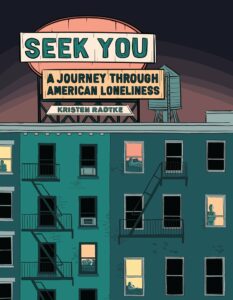
Kristen Radtke, Seek You: A Journey Through American Loneliness
Pantheon Graphic Library, July 13
It has been one of the loneliest years in collective human history. In many ways, the illusions of intimacy provided us by digital convenience have rendered the physical separations of pandemic life that much harder. It’s difficult to think of anyone better suited to investigate this melancholy paradox than Kristen Radtke, whose graphic narratives convey—often with dizzying potency—the full range of how human solitude can manifest. Seek You a “meditation on isolation and longing, both as individuals and as a society” is the perfect framework for her mode of visual and narrative exploration. –from Lit Hub’s Summer Nonfiction Preview
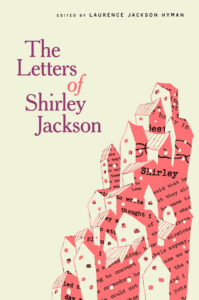
Shirley Jackson, Laurence Jackson Hyman (ed.), Bernice M. Murphy (cont.), The Letters of Shirley Jackson
Random House, July 13
Shirley Jackson’s son Laurence Jackson Hyman edited this collection of never-before-published letters, written over more than 30 years, which give new details on Jackson’s life and writing (also, it includes some of her drawings!). –from Lit Hub’s Summer Nonfiction Preview
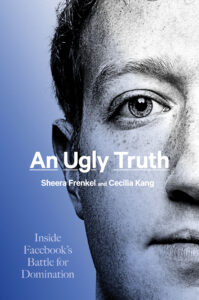
Sheera Frenkel and Cecilia Kang, An Ugly Truth: Inside Facebook’s Battle for Domination
Harper, July 13
At this point it’s taken for granted that Facebook is both a bad experience for users (who surrender huge amounts of data to a private corporation for the privilege of arguing with their weird libertarian uncle) and a bad experience for the fragile experiment that is western democracy. So how did that happen? Sheera Frenkel and Cecilia Kang dig deep into the last five years of the world’s largest social network to reveal bewildering patterns of toxic factionalism, corporate cynicism, and naïve hubris at the very top. At this point, is anyone really in charge? –from Lit Hub’s Summer Nonfiction Preview
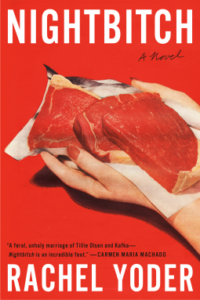
Rachel Yoder, Nightbitch
Doubleday, July 20
I inhaled this delicious bloody feast of a novel, in which an overwhelmed mother begins—or maybe only thinks she begins—to turn into a dog at night. She calls herself . . . Nightbitch. Of course she does. I won’t give too much away here, but yes, she poops on someone else’s lawn. Ultimately, the novel not only manages to be a convincing portrait of modern motherhood, with all the joy and mindfuckery that implies, but also toes the line between clever metaphor and transgressive fantasy, making a convincing claim for both. –ET (in Lit Hub’s Summer Fiction Preview)
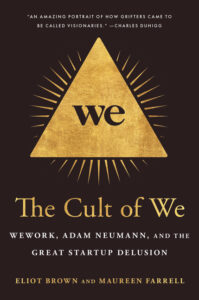
Eliot Brown and Maureen Farrell, The Cult of We: WeWork, Adam Neumann, and the Great Startup Delusion
Crown, July 20
It’s hard to believe the guy who sublet desks to freelancers once thought he’d become the world’s first trillionaire. But that’s the kind of deep and delusional thinking that blessed the world Adam Neumann, an outsized Silicon Valley villain who seemed part cult leader, part used car salesman—hence the title of this deeply reported inside look at gig economy opportunism run amok. –from Lit Hub’s Summer Nonfiction Preview
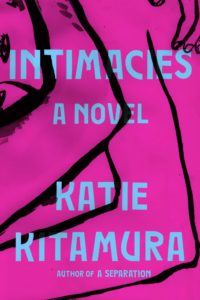
Katie Kitamura, Intimacies
Riverhead, July 20
Katie Kitamura has a knack for creating tension even when nothing, it seems, is going on—a particular magic trick, especially in such precise, even quiet prose. In the novel, a woman who has recently moved to The Hague to work as an interpreter at the international court is faced with an unsettling trial, a destabilizing love affair, and a disquieting connection to an act of violence—when all she is after is a sense of security and home. The result is morally complex, even philosophical, emotionally affecting, and clear as cold water. It sneaks up on you, page by page; by the end I wanted to jump right back in. –ET (in Lit Hub’s Summer Fiction Preview)
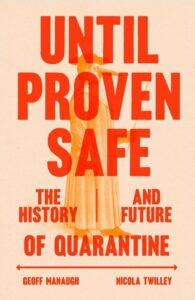
Nicola Twilley and Geoff Manaugh, Until Proven Safe: The History and Future of Quarantine
MCD, July 20
Early during the Covid-19 pandemic we were reminded far and wide of the etymology of quarantine (Italian ships held at port for 40 days to be cleared of plague), a grim kind of isolation that many of us would come to know far too well in the year that followed. But as Geoff Manaugh and Nicola Twilley reveal in Until Proven Safe, this kind of segregation is nothing new for the human race, which has always turned to quarantine in the face of new and unknown pestilence. And as the 21st-century brings new, weird threats (labs accidents! space plagues!) we have to be as vigilant as ever about protecting the herd. –from Lit Hub’s Summer Nonfiction Preview
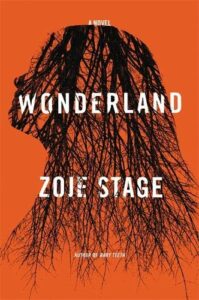
Zoje Stage, Wonderland
Mulholland Books, July 20
Stage’s chilling follow-up to Baby Teeth (2018), now in paperback, takes on the topics of parenthood, domesticity, and the natural world. Orla Moreau, 41, used to be a ballet dancer in New York. However, the time has come to hang up her pointe shoes and retire. Orla and her husband, 38-year-old painter Shaw Bennett, and their two young children move to a farmhouse deep in the Adirondacks. Soon thereafter, their dreams of quiet countryside living become unrecognizable. Who—or what—is preying on the family? Stage’s novel elevates familiar horror tropes (isolation in the wilderness; haunted houses; the terror of the sublime), culminating in an unsettling portrait of a family in crisis. –VW (in Lit Hub’s Summer Fiction Preview)
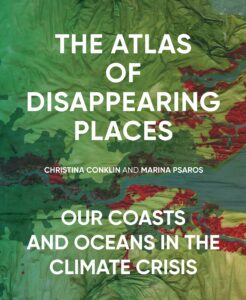
Christina Conklin and Marina Psaros, The Atlas of Disappearing Places: Our Coasts and Oceans in the Climate Crisis
New Press, July 20
This unique atlas project portrays places under threat due to the climate crisis—including New York City, Houston, the Cook Islands, and Shanghai—and maps the ways they will change or disappear, unless the global community acts to stop it. Combining climate science, storytelling, and art, this is an undeniably beautiful approach to an important, and troubling, topic. –from Lit Hub’s Summer Nonfiction Preview

Andrew Palmer, The Bachelor
Hogarth, July 20
This impressive debut is a perfect read for a summer of regrouping. Our narrator, nearly thirty and aimless in the wake of a breakup with his novelist girlfriend, moves back to his hometown of Des Moines and rents his mom’s friend’s house. Instead of writing, as was his plan, he spends his time watching The Bachelor and digging into a biography of John Berryman—that is, when he isn’t looking for love among the (sharp, specific, three-dimensional!) women he knows. The narrator’s compulsive self- and cultural analysis is refreshing rather than tedious; in Millennial Consumer Culture World, we rarely see main characters that consume culture with genuine, reasonable love. It’s a funny, smart, quietly beautiful novel about the search for narrative—in art, in work, in life. –Walker Caplan (in Lit Hub’s Summer Fiction Preview)
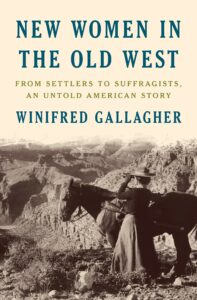
Winifred Gallagher, New Women in the Old West: From Settlers to Suffragists, an Untold American Story
Penguin Press, July 20
In the mid to late 19th century, a wave of white settlers established a constellation of cities in the American West where women could play a more important role in public life than ever before. Winifred Gallagher accounts for this era in history and how the women of the West contributed to the suffragist movement, including those who were further disenfranchised due to their race. –from Lit Hub’s Summer Nonfiction Preview

Omar El Akkad, What Strange Paradise
Knopf, July 20
Perhaps we need a new micro-genre to describe the work of Omar El Akkad, who builds impossibly taut, thriller-like narrative structures around deeply complex moral problems (“moral thriller” might not sell books, but that’s what we’re talking about). In What Strange Paradise—the tale of a Mediterranean migrant journey gone wrong—El Akkad sets his chorus of moral actors adrift (literally and figuratively) on the desperate seas of refugee misfortune and removes the luxury of anything resembling binary certainty. Some of these characters reveal innate goodness, while others display breathtaking indifference to the suffering of others; and yet in El Akkad’s moral universe, no one is judged, and no one is made into a monster.
If anything is definitively monstrous in What Strange Paradise it is the larger dehumanizing systems—those global, tidal forces of money and power—that render individual, moral choice a quaint, fairy tale redundancy. But just when things seem impossibly bleak, amid the ongoing apocalypse of contemporary global displacement, El Akkad allows for the possibility of hope in individual moral choice, reminding us that any given life is simply that, a collection of hard choices, for good or for ill. –Jonny Diamond (in Lit Hub’s Summer Fiction Preview)

Terry Leahy, The Politics of Permaculture
Pluto Press, July 20
Permaculture is an environmentally conscious way of interacting with the land—somewhere between farming and landscaping—that prioritizes natural processes and the health of endemic flora and fauna. Like many eco-forward movements it has largely been the province of those with the land, time, and money to practice it, a problem that Terry Leahy addresses head on in The Politics of Permaculture, which outlines the ways in which permaculture can benefit both the land and people of the global south. This is what we might call intersectional sustainability. –from Lit Hub’s Summer Nonfiction Preview
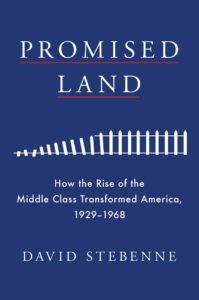
David Stebenne, Promised Land: How the Rise of the Middle Class Transformed America, 1929-1968
Scribner, July 20
David Stebenne looks at the history of the 20th century from the perspective of the middle class, which thrived throughout the mid-century until the political clashes of the late 1960s interrupted its growth. Promised Land is a valuable close look at a revealing period in the history of class in the US. –from Lit Hub’s Summer Nonfiction Preview

Giles Tremlett, The International Brigades: Fascism, Freedom and the Spanish Civil War
Bloomsbury, July 20
You could say the International Brigades that formed in 1936 to defend the fledgling Spanish Republic against the fascist Loyalists were the first true manifestation of Antifa… As revealed by Giles Tremlett’s full history of the brigades, all manner of socialists, communists, anarchists, freedom fighters, adventure-seekers, and more came from 61 countries to form one of the largest volunteer armies Europe had ever seen. Were they particularly unified? No. Did they have a common enemy? Yes, fascism. Even though it didn’t work, this manifestation of sacrifice and support to a common cause remains one of the more hopeful moments in an otherwise horrifying few decades of war and destruction. –from Lit Hub’s Summer Nonfiction Preview
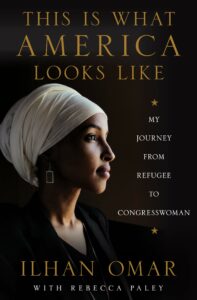
Ilhan Omar, This Is What America Looks Like: My Journey from Refugee to Congresswoman
Dey Street, July 27
Ilhan Omar’s autobiography follows her path from a childhood in Somalia—and subsequent stay at a Kenyan refugee camp—to adolescence in Arlington, Virginia and growth as an organizer, culminating in her election to Congress. Reading her unique life story is an education in perseverance and the importance, and value, of community in achieving political objectives. –from Lit Hub’s Summer Nonfiction Preview
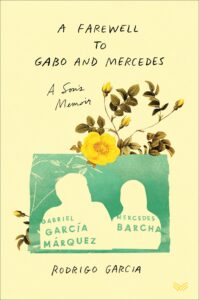
Rodrigo Garcia, A Farewell to Gabo and Mercedes: A Son’s Memoir by Rodrigo Garcia
HarperVia, July 27
The imminence of death can create unlikely intimacies both tender and stark, particularly between a grown child and their aging parent. So it was for Rodrigo Garcia, the son of Gabriel Garcia Marquez, whose richly observed account of the last days of his iconic father is itself a work of fine literary merit. It will always be one of life’s cruel paradoxes that we pay closer to attention to that which we are about to lose, but in doing so in this memoir Rodrigo has gifted his father’s millions of readers a close-up view of one of the 20th century’s great writers. –from Lit Hub’s Summer Nonfiction Preview
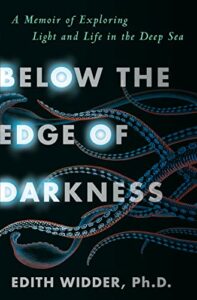
Edith Widder, Below the Edge of Darkness: A Memoir of Exploring Light and Life in the Deep Sea
Random House, July 27
Oceanographer and marine biologist Edith Widder has spent her career studying the wonder of oceanic bioluminescence. Below the Edge of Darkness blends the science of her field with stories of the adventure of deep sea exploration, underscored with the urgency of the need for the conservation of a vast and greatly imperiled ecosystem. –from Lit Hub’s Summer Nonfiction Preview
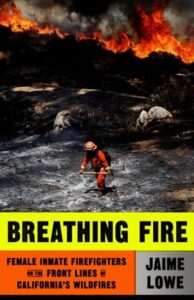
Jaime Lowe, Breathing Fire: Female Inmate Firefighters on the Front Lines of California’s Wildfires
MCD, July 27
Incarcerated firefighters do some of the most dangerous and underpaid work in America. Here, Jaime Lowe, who covered the stories of incarcerated female firefighters for The New York Times Magazine, looks in detail at the fire camp programs where they earn a dollar an hour doing life-threatening work that grows more dire every year as the climate crisis continues. –from Lit Hub’s Summer Nonfiction Preview
AUGUST
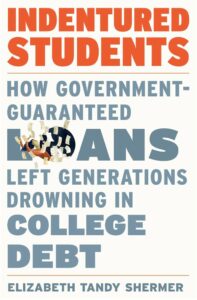
Elizabeth Tandy Shermer, Indentured Students: How Government-Guaranteed Loans Left Generations Drowning in College Debt
Belknap Press, August 3
To be debt free in America in the 21st century is to have a very particular kind of privilege: as of today, 45 million Americans owe approximately 1.5 trillion dollars in college tuition debt (that’s T as in “there’s no way most millennials can afford a home”). Indentured Students traces the very particular policies of the last 60 years that led to this situation, discovering an unsurprising reluctance by those in power to open up college education to a wider group Americans (guess who, and guess why). –from Lit Hub’s Summer Nonfiction Preview
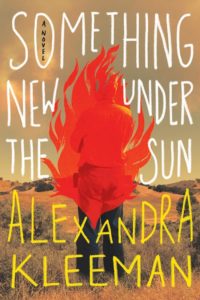
Alexandra Kleeman, Something New Under The Sun
Hogarth, August 3
When Something New Under the Sun begins, Patrick is a writer who has naively accepted a role as a PA on the set of a film adaptation of his novel in lieu of payment. He doesn’t, it is soon clear, have any idea what a PA is. We meet his philosophizing comrades (Horseshoe and the Arm), the problematic starlet (Cassidy) and slowly discover that the California in which they are filming is not quite our own—water has run out and been replaced by WAT-R, a man-made, supposedly chemically identical substance. Because this is an Alexandra Kleeman novel, none of it goes where you think it’s going to, but it’s all so wildly entertaining and beautifully written that it really doesn’t matter where you end up. –ET (in Lit Hub’s Summer Fiction Preview)
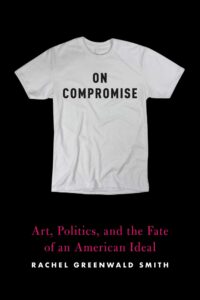
Rachel Greenwald Smith, On Compromise: Art, Politics, and the Fate of an American Ideal
Graywolf Press, August 3
What’s the point of compromise? Rachel Greenwald Smith interrogates what has often been an ideal of liberal politics, looking at the role it played in various cultural controversies and in her own personal experiences. In the process, she argues that compromise is a strategy, not a goal unto itself, and to think of it as such is counterproductive to cultural growth. –from Lit Hub’s Summer Nonfiction Preview
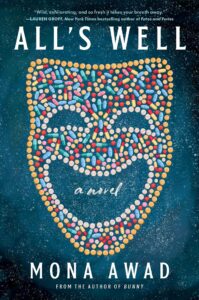
Mona Awad, All’s Well
Simon & Schuster, August 3
On a sentence level, I find Awad’s writing deeply satisfying: readable and tricky and pleasurable—which may have to do with us speaking a similar literary patois infused with Shakespeare and fairy tale logic. So be it. In this novel, a woman wracked with pain that no one can remedy or even really recognize is trying to get her students to put on an unpopular play: All’s Well That Ends Well. But when even walking is a trial, enforcing your will is nearly impossible—until something happens, in fact three somethings, that change the rules of the world. As in Awad’s last novel Bunny, things start off weird and institutional and then spiral into madness, and as in Bunny, the experience is a fiendish delight: funny, thrilling, and creepily recognizable. –ET (in Lit Hub’s Summer Fiction Preview)

Courtney E. Martin, Learning in Public: Lessons for a Racially Divided America from My Daughter’s School
Little, Brown and Company, August 3
When Courtney Martin enrolled her daughter at a public school in Oakland, California, that other local white families tended to avoid—often in favor of expensive private schools—she soon began to observe the effects of multicultural learning and the complicated dynamics that govern education and race in the area. This is the story of what school segregation, a nationally important issue, looks like through the lens of one family’s experience. –from Lit Hub’s Summer Nonfiction Preview
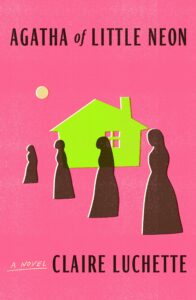
Claire Luchette, Agatha of Little Neon
FSG, August 3
I never knew I needed a book about four Catholic sisters reassigned to a neon-painted halfway house in a former mill town, but reader, I did. Upon their arrival, Agatha is cornered into teaching math at the local all-girls high school (run by hapless, punitive men), where she makes a new friend and carves out a little world for herself away from her sisters. At home, Agatha’s response to the residents of Little Neon is more recognition than religious platitudes, and as stories of abusive priests appear in the news, Agatha finds her anger hard to bear. Luchette’s writing is both wry and earnest, which might be my favorite combination. –ES (in Lit Hub’s Summer Fiction Preview)
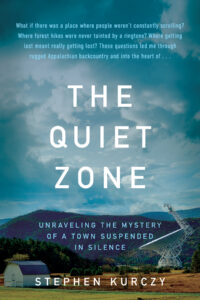
Stephen Kurczy, The Quiet Zone: Unraveling the Mystery of a Town Suspended in Silence
Dey Street Books, August 3
For years, Green Bank, West Virginia, has instituted a ban on digital technology (including consumer electronics) that could interfere with the workings of the Green Bank Observatory, which is used by astronomers and researchers. Stephen Kurczy immerses himself in this unique setting, tracing the history of a town unlike any other in the US and its present-day relationship to digital technology. –from Lit Hub’s Summer Nonfiction Preview
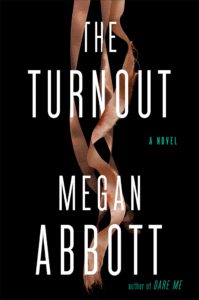
Megan Abbott, The Turnout
G.P. Putnam’s Sons, August 3
Megan Abbott’s latest novel captures the psychological paranoia of Black Swan and the toxic sibling rivalry of Whatever Happened to Baby Jane? Sisters Dara and Marie Durant, former ballerinas turned ballet instructors, inherit their family’s modest ballet studio after the unexpected death of their parents. Dara and Marie couldn’t be more different. Steely-eyed Dara is the “dark” to dreamy, childish Marie’s “light.” The pair are locked in their roles, obediently executing the traditions established by their mother. Every year, the studio performs The Nutcracker—a considerable feat of planning, time, and money. However, their routine is upended when a fire nearly burns down the school. To repair the damage, the sisters hire a recommended contractor. The contractor’s arrival kicks off the deconstruction of their carefully curated lives. The Turnout unfolds like a dark fairy tale, unpacking the rigid demands of femininity. Abbott fans and suspense lovers alike won’t be disappointed with this exploration of human frailty and twisted love. –VW (in Lit Hub’s Summer Fiction Preview)
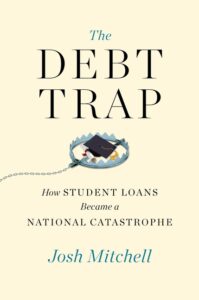
Josh Mitchell, The Debt Trap: How Student Loans Became a National Catastrophe
Simon & Schuster, August 3
Josh Mitchell, a reporter for The Wall Street Journal, uncovers the history of the predation that created the student debt industry, which has created impossible financial barriers for at least one generation of Americans and shows no signs of slowing down—a phenomenon that Mitchell likens to the housing bubble. It is, unsurprisingly, a shocking history, dominated by an attitude of exploitation toward American students and their families. –from Lit Hub’s Summer Nonfiction Preview

Ash Davidson, Damnation Spring
Scribner, August 3
This ambitious, assured debut drops us into a 1977 Pacific Northwest logging town clinging to their way of life as their land is razed around them. Midwife Colleen starts to suspect the herbicides used in logging are the cause of her and other women’s miscarriages; but while she seeks answers, her husband Rich, unbeknownst to her, spends their family’s savings on purchasing the land on which he works. Meanwhile, a burgeoning environmentalist movement threatens loggers’ livelihoods. Told in alternating points of view from Colleen, Rich, and their son Chub’s perspective, it’s a devastating page-turner with a love story at its center. –WC (in Lit Hub’s Summer Fiction Preview)
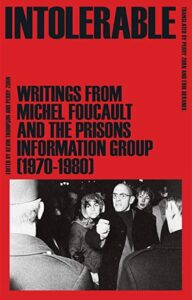
Michel Foucault, Prisons Information Group, Kevin Thompson, Perry Zurn and Erik Beranek, Intolerable: Writings from Michel Foucault and the Prisons Information Group (1970–1980)
University of Minnesota Press, August 3
The Prisons Information Group was formed by French intellectuals and activists to interrogate and resist the harsh policies of the French carceral state, and included the likes of Gilles Deleuze, Helene Cixous, and Michel Foucault (the latter would develop and refine his framework of carceral criticism through his work in the group). Though “resistance” in the Trump Era became more of a brand than a battle plan, it is not hard to see the relevance of the Prisons Information Group to the current movement for prison reform and abolition: lessons of past resistance are always important to the future. –from Lit Hub’s Summer Nonfiction Preview
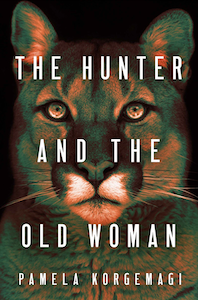
Pamela Korgemagi, The Hunter and The Old Woman
House of Anansi, August 3
As much as we like to give ourselves credit for understanding the role of the natural world in the equilibrium of the planet we are, ultimately, a destabilizing and delusional species—we put ourselves at the center of the story, and treat our environment like cheap background scenery. The Hunter and The Old Woman goes some small way toward redressing this narrative imbalance, offering parallel protagonists—as advertised by the title—whose lives seem destined to intersect from the moment they’re born. The eponymous Old Woman, however, is a cougar who inhabits an almost mythic forest realm at the far edges of the human world.
Korgemagi has written The Hunter and The Old Woman as a kind of realist parable, and unapologetically anthropomorphizes the animal characters, giving them what we might think of as “emotional range.” This is a bold decision, and I can imagine some readers taking issue with it out of an overdeveloped sensitivity to… well, I don’t know what exactly: the idea that there is a correct way to embody cougar consciousness in a novel is absurd. By dispensing with the syntactical ticks that sometimes pass for non-human ideation in fiction, Korgemagi deftly elevates—and equalizes—the emotional stakes of her dual protagonists. And though we know they’re stand-ins for the cyclical collisions of Man and Nature, the parallel fates of these fully drawn characters, The Hunter and The Old Woman, feel intimate and urgent. (If only we could be made to feel this way about the fate of the natural world.) –JD (in Lit Hub’s Summer Fiction Preview)
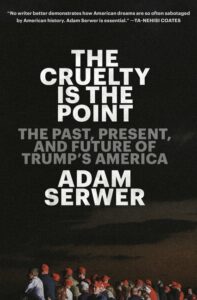
Adam Serwer, The Cruelty Is the Point: Essays on Trump’s America
One World, August 3
Adam Serwer, a staff writer for The Atlantic, adds this contribution to the long process of reckoning with the Trump administration, analyzing the dynamics and inequalities that led to his rise and examining Trump as a phenomenon that is consistent with the path of US history. His essays expand on the effects of American history on the present and the possibilities of our political future. –from Lit Hub’s Summer Nonfiction Preview
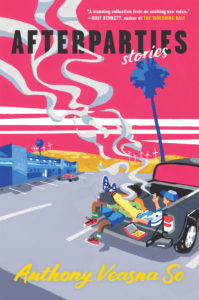
Anthony Veasna So, Afterparties
Ecco, August 3
Afterparties, a “history-haunted comedy of Cambodian-American manners,” has been one of our most anticipated short story collections of 2021 for a while now. Even if you’re late to the (after)party, you might remember So’s story, “Three Women of Chuck’s Donuts,” which was published in the New Yorker in February 2020. Or take it from George Saunders, who described these stories as being “like beams of wry, affectionate light, falling from different directions on a complicated, struggling, beloved American community.” –ET (in Lit Hub’s Summer Short Story Preview)
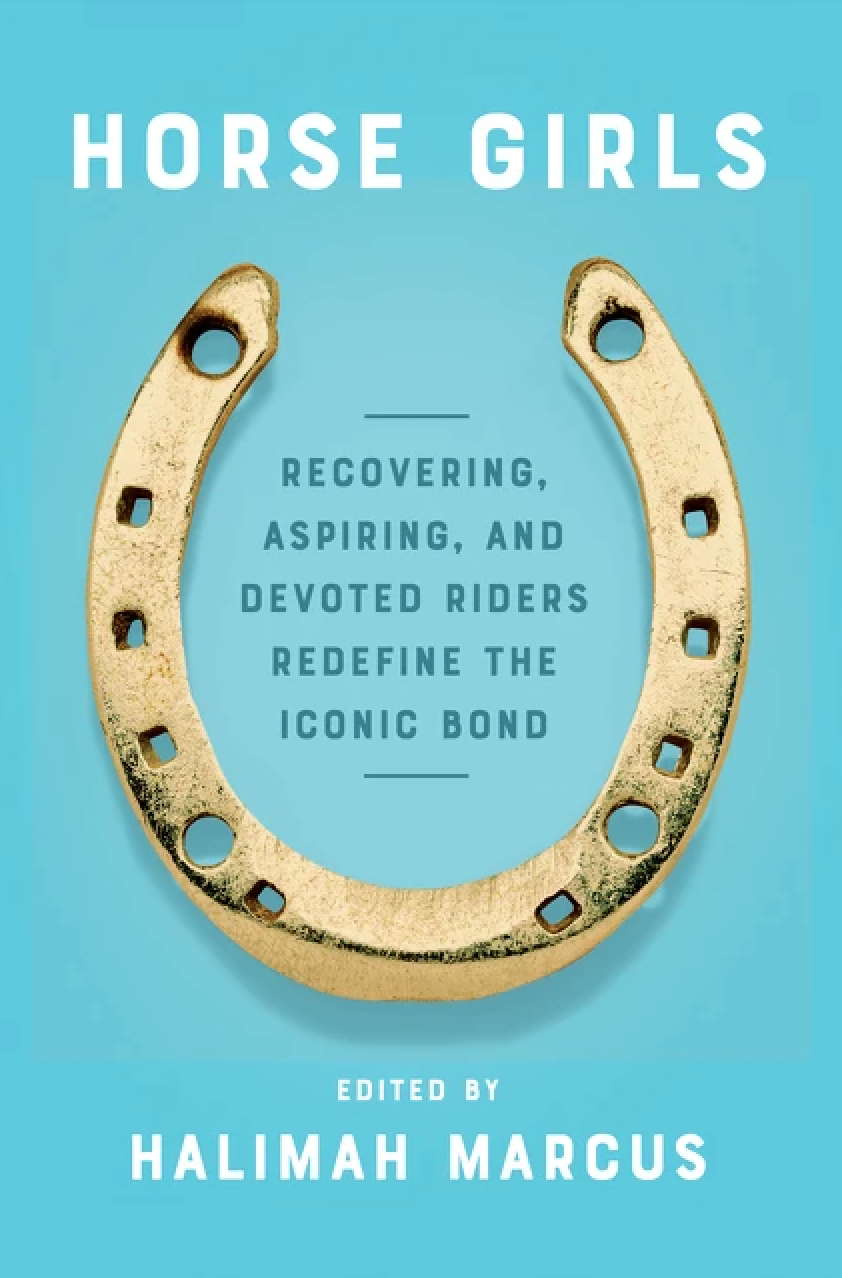
Halimah Marcus (ed.), Horse Girls
Harper Perennial, August 3
This is not your mother’s anthology of equestrian memoir (though she’ll probably like it): just a glance at the line-up of heavy-hitting writers should be enough to tell you that, with contributions from Carmen Maria Machado, Jane Smiley, T Kira Madden, Maggie Shipstead, and many more. In offering a broad array of perspectives across culture, class, and gender Horse Girls upends the rarified stereotypes of privilege and exclusivity so often ascribed to the wealthy, white “horsey set.” –from Lit Hub’s Summer Nonfiction Preview
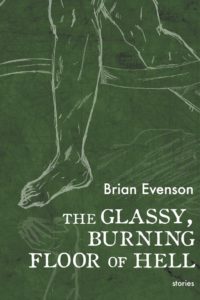
Brian Evenson, The Glassy, Burning Floor of Hell
Coffee House Press (August 3)
Evenson is one of our greatest contemporary writers of literary horror; I’m always psyched—and a little afraid—when he has a new book out. According to the publisher, his latest collection “envisions a chilling future beyond the Anthropocene that forces excruciating decisions about survival and self-sacrifice in the face of toxic air and a natural world torn between revenge and regeneration.” Gah, and also: give it. –ET (in Lit Hub’s Summer Short Story Preview)

Tom Gatti, Long Players: Writers on the Albums that Shaped Them
Bloomsbury, August 3
Long Players collects essays from contemporary writers on the albums that have shaped them, and the list is impressive: Marlon James, Patricia Lockwood, Rachel Kushner, Bernardine Evaristo, and many others weigh in. Ben Okri writes on Miles Davis; Daisy Johnson on Lizzo; David Mitchell on Joni Mitchell. (One of these catch your attention yet?) There’s a lot to connect to in this collection of stories on the moments music history meets personal history. –from Lit Hub’s Summer Nonfiction Preview
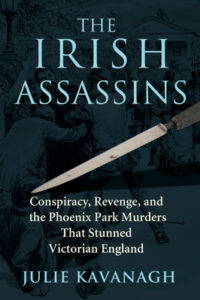
Julie Kavanagh, The Irish Assassins: Conspiracy, Revenge and the Phoenix Park Murders that Stunned Victorian England
Grove, August 3
As true crime stories go, this one has it all: clandestine plotting, scandalous affairs, shadowy organizations, brutal murders, far-reaching political implications, and, for good measure, someone known as “the Irish Sherlock Holmes.” The year was 1882 and British Prime Minister William Gladstone had been making progress in backroom negotiations with pro-Irish independence leader Charles Stewart Parnell—until the brutal murder of Lord Frederick Cavendish and Thomas Burke, Chief Secretary and Undersecretary for Ireland. The two were cut down in Phoenix Park by a group of American-funded hardline nationalists called The Invincibles, a crime that would become internationally notorious, and effectively ended the possibility of negotiated independence. Kavanagh’s gripping account of the murders is a stark reminder that history is a chaotic jumble of chance, circumstance, and opportunity, as much about what could have been as about what was. –from Lit Hub’s Summer Nonfiction Preview
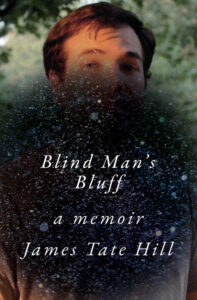
James Tate Hill, Blind Man’s Bluff
W.W. Norton, August 3
James Tate Hill—who writes a column for Lit Hub recommending audiobooks each month—recounts his experience with Leber’s hereditary optic neuropathy, which resulted in the legal blindness he tried to cover up for years. His memoir delves into this period of his life along with the way his relationship with vision, and self-acceptance, evolved over time. –from Lit Hub’s Summer Nonfiction Preview
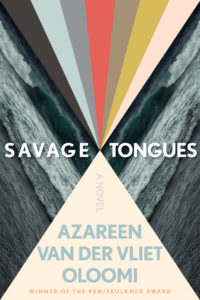
Azareen Van der Vliet Oloomi, Savage Tongues
HMH, August 3
From the award-winning Azareen Van der Vliet Oloomi comes the story of Arezu, an Iranian American teenager who goes to Spain in search of her father, only to find herself in an affair with his step-nephew, a 40-year-old man. Twenty years later, Arezu returns to the place with her best friend (an Israeli American scholar on the side of the Palestinians; an eerily timely detail) to try to make sense of what happened. As a narrator, Arezu is a brutally honest guide through her past. This is a pulls-no-punches look at abandonment, ownership, trauma, and the convergence of political and personal pain. It is also a touching ode to friendship, a partial salve for these wounds. –KY (in Lit Hub’s Summer Fiction Preview)

Anna Qu, Made in China: A Memoir of Love and Labor
Catapult, August 3
Anna Qu reported her mother to child services after being forced to work in a Queens factory as a teenager. Two decades later, accessing her own report from the Office of Children and Family Services, she finds a number of inaccuracies. Her memoir explores her relationship to this history, her family’s immigration story, trauma, and survival through abuse. –from Lit Hub’s Summer Nonfiction Preview
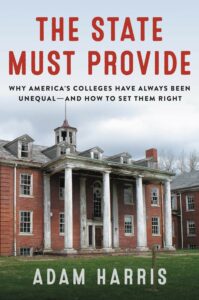
Adam Harris, The State Must Provide: Why America’s Colleges Have Always Been Unequal—and How to Set Them Right
Ecco, August 10
Adam Harris looks at the state of affairs in higher education, which continues to entrench stark racial and class inequalities in the US, examining how we got here—from crucial legal decisions on school segregation to the historical climate that oppressed Black students—and what problems keep us from moving forward. His account indicts a system that should be upholding higher ideals of equality while also offering ideas on what must change. –from Lit Hub’s Summer Nonfiction Preview

A.K. Blakemore, The Manningtree Witches
Catapult, August 10
If you too like to be excited (and disturbed, and amused) by your sentences, I suggest you pick up this tensile first novel by poet A.K. Blakemore, one of at least two great Witch Trial-related novels being published this summer. This one concerns the sharp-eyed, sharp-tongued Rebecca West and her years-long battle against the terrifying, black-clad Witchfinder General. I’m shivering just thinking about it, but never have I been so glad to be so upset! –ET (in Lit Hub’s Summer Fiction Preview)

Elly Fishman, Refugee High: Coming of Age in America
The New Press, August 10
Elly Fishman captures the 2017-8 academic year at Chicago’s Roger C. Sullivan High School, tracking the highs and lows of the school’s refugee and immigrant student community in this thoroughly reported account. Fishman examines the concept of the American Dream in the context of the American education system with stunning clarity and insight. –from Lit Hub’s Summer Nonfiction Preview
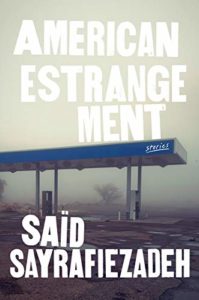
Saïd Sayrafiezadeh, American Estrangement
Norton, August 10
I’ve been waiting for a new collection by Sayrafiezadeh since his excellent debut Brief Encounters with the Enemy, which he published back in 2013. I’m thrilled he’s back. “There are powerful social, economic, political, and ethnic forces shaping the characters in American Estrangement,” Sayrafiezadeh told The New Yorker‘s Cressida Leyshon, “often from afar, often imperceptibly, and they are therefore unnameable. I wanted to avoid having my characters be completely aware of society. I wanted them to be a little clueless—as are we all.” Indeed. If you’re not convinced yet, start with “A,S,D,F.” –ET (in Lit Hub’s Summer Short Story Preview)
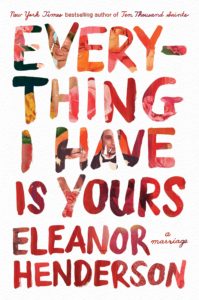
Eleanor Henderson, Everything I Have is Yours
Flatiron, August 10
New York Times bestselling author Eleanor Henderson depicts a different kind of marriage story in this earnest memoir. When she was a teenager, Henderson met her future husband Aaron at a local record store. Their summer romance blossomed into a long-term relationship, ultimately leading to marriage and children. Although their married life seemed picture perfect, it battled universal stressors: parenting, financial woes, and work. One day, Aaron began to develop a rash, which developed into painful lesions. What had caused Aaron to become ill? Is there a cure? Henderson unpacks this medical mystery in the context of relationships and modern love. Just how far would you go to save the person you love? –VW

Jennifer Otter Bickerdike, You Are Beautiful and You Are Alone: The Biography of Nico
Hachette, August 10
Jennifer Otter Bickerdike takes a close look at iconic Warhol muse and Velvet Underground collaborator Nico. You Are Beautiful and You Are Alone makes a strong case for Nico’s legacy as an influential yet underappreciated singer-songwriter. Bickerdike utilizes the archives at the Andy Warhol Museum and at Nico’s record labels, various private collections, rarely seen footage, and exclusive new interviews to demythologize—and thereby humanize—the iconic German rock star. –from Lit Hub’s Summer Nonfiction Preview
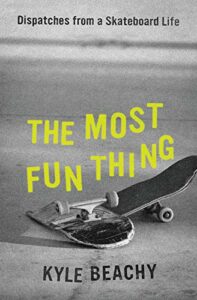
Kyle Beachy, The Most Fun Thing: Dispatches from a Skateboard Life
Grand Central, August 10
There are a lot of very serious books in this preview—but even though life has been hard for so many people over the last year, it’s ok to have fun. This is perhaps one of the more important lessons from Kyle Beachy’s hybrid work of memoir and cultural criticism, which examines skateboarding as a cultural phenomenon that has grown up alongside the punk-aligned 80s skatekids who now have teenagers of their own. What does it mean to be in one’s early forties and still not quite be able to land more than one in four kickflips? Why does it bring such joy? And where, exactly, is the line between counter- and corporate culture when it comes to a “sport” like skateboarding? –from Lit Hub’s Summer Nonfiction Preview
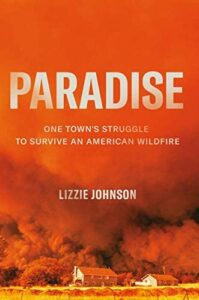
Lizzie Johnson, Paradise: One Town’s Struggle to Survive an American Wildfire
Crown, August 17
The climate apocalypse has been here for awhile now, depending on where you choose to look. For San Francisco Chronicle reporter Lizzie Johnson, that was Paradise, California, which was left devastated in the wake of 2018’s Camp Fire, one of the deadliest wildfires in the nation’s history. Assigned to cover the breaking story Johnson had a firsthand view of the town’s destruction (85 people died) and has since put together this important minute-by-minute document of the consequences of climate change, based on frontline reporting, public records, and extensive interviews with survivors. –from Lit Hub’s Summer Nonfiction Preview
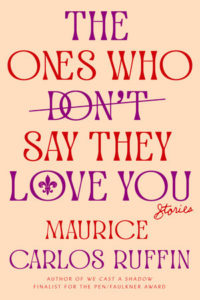
Maurice Carlos Ruffin, The Ones Who Don’t Say They Love You
One World, August 17
Maurice Carlos Ruffin follows up on his darkly provocative, critically acclaimed debut novel, We Cast a Shadow, with this collection of stories set in and around his native New Orleans. The characters in Ruffin’s stories struggle, in their various ways, to navigate the depths of a great American city too often mythologized for its flamboyant surfaces. –JD (in Lit Hub’s Summer Short Story Preview)
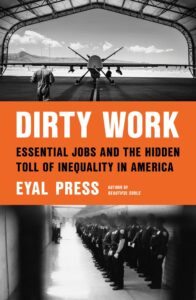
Eyal Press, Dirty Work: Essential Jobs and the Hidden Toll of Inequality in America
Farrar, Straus and Giroux, August 17
This nation’s success, such as it is for those at the top of the pyramid, relies on a veritable army of the underpaid and overworked to carry out the very worst kind of labor. As Eyal Press reveals in this engrossing account of terrible jobs—from factory farms to the prison-industrial complex—American capitalism is an unsustainable system that continues to demand a brutal toll from its workers, both physically and morally. If we think so many of them are “essential” why can’t we create better conditions for what they do? –from Lit Hub’s Summer Nonfiction Preview
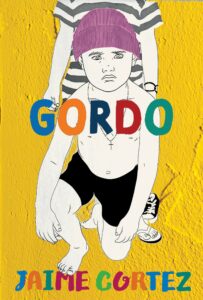
Jaime Cortez, Gordo
Black Cat, August 17
Gordo is the Winesburg, Ohio of the 21st century—but instead of revealing mid-America of the 1910s, Cortez plumbs the lives of those living in a migrant labor camp in California in the 1970s through the eyes of Gordo, “a fat, precocious nine-year-old sissy boy” (his words, not mine: Litquake 2019). “The Jesus Donut” launches this book like a missile. A man who looks like “Mr. Kentucky Fried Chicken” shows up at Gyrich Farms Worker Camp (the name, Guy-rich, indicates Cortez’s parodic sensibilities) with a van full of donuts for sale, amid five kids, including our narrator, Gordo. Thing is, nobody has a cent. That is until Olga pulls a quarter from her dirty sneaker and buys two for twenty cents. “Body of Christ” says Olga as she raises a donut piece to each kneeling kid (something she insists they do for their reward) and they respond, “Amen” in an impromptu, forced communion. I nearly fell off my chair laughing. Cortez’s dialogue, timing, and humor is quick, dark, and hilarious and the voice of Gordo, singular and soaring, full of naïveté and grit that wrangles humor and human complexity with serious high stakes themes, for in the background, migrant workers carry burdens many of us don’t. While I’ve only read two chapters, I can tell Gordo, like Winesburg, Ohio, is capable of changing not only what it means to be American today, but what American literature can be; that of giving voice to the periphery. Hands down, top debut of 2021. –Kerri Arsenault (in Lit Hub’s Summer Short Story Preview)
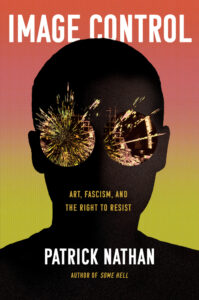
Patrick Nathan, Image Control: Art, Fascism, and the Right to Resist
Counterpoint, August 17
In Image Control, Patrick Nathan looks for the root of fascism, and humanity’s susceptibility to it, in the aesthetics of the internet. Nathan argues that encountering images at warp speed and in isolation from their context has negatively affected our ability to digest nuance (a dynamic that anyone who’s witnessed an argument online can attest to). Nathan’s unique work of analysis diagnoses a problem underlying many of our online interactions, one with important implications for both personal relationships and national politics. –from Lit Hub’s Summer Nonfiction Preview

William deBuys and Rebecca Gaal (ill.), The Trail to Kanjiroba: Rediscovering Earth in an Age of Loss
Seven Stories Press, August 17
William deBuys’s The Trail to Kanjiroba is both the story of the author’s journeys to Upper Dolpo, an isolated area in northwestern Nepal, and an analysis of the scientific advances that have helped humans interpret the natural world over the course of centuries. It is a work of close attention to a unique landscape, the kind of story that will only grow more important as landscapes of all kinds fall under the threat of human-caused destruction and climate change. –from Lit Hub’s Summer Nonfiction Preview
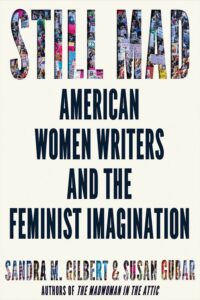
Sandra M. Gilbert and Susan Gubar, Still Mad: American Women Writers and the Feminist Imagination
W.W. Norton, August 17
Literary critics Sandra M. Gilbert and Susan Gubar, authors of The Madwoman in the Attic, now look at the legacy of literary second wave feminists in Still Mad, which revisits work by Toni Morrison, Adrienne Rich, Ursula K. Le Guin, Maxine Hong Kingston, Gloria Anzaldúa, and others. This is a great chance to revisit some of our most foundational writers and thinkers. –from Lit Hub’s Summer Nonfiction Preview
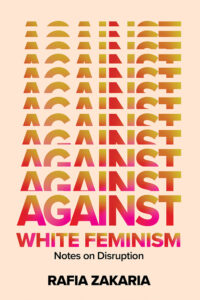
Rafia Zakaria, Against White Feminism: Notes on Disruption
W.W. Norton, August 17
The empty language of empowerment and girlbossery by which mainstream (white) feminism is disseminated has been to the detriment of the vast majority of women, and to the very idea of women’s equality. Rafia Zakaria looks at the white supremacy woven throughout the women’s movement and makes the case for the absolute necessity of a new framework. –from Lit Hub’s Summer Nonfiction Preview
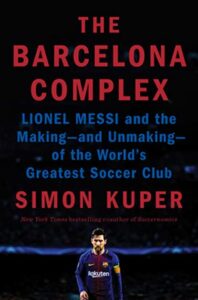
Simon Kuper, The Barcelona Complex: Lionel Messi and the Making—and Unmaking—of the World’s Greatest Soccer Club
Penguin Press, August 17
How did FC Barcelona become the biggest, most successful sports franchise on the planet? (Sorry, Americans, it’s true.) Financial Times journalist Simon Kuper was given hitherto unthinkable access to the inner workings of this beloved institution—that’s run more like a global conglomerate than a soccer club—and charts Barca’s rise in parallel to the careers of two of its mega-stars, Johan Cruyff and Lionel Messi. But can Barcelona’s status as global sports superpower outlive the incredible career of the latter, whose time as the best player in the world is coming to an end? –from Lit Hub’s Summer Nonfiction Preview
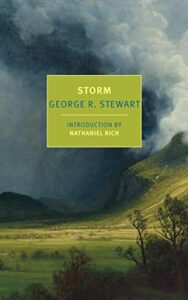
George R. Stewart, Storm
NYRB, August 17
The landscape of California and its accompanying weather turmoil (drought, lightning, fire) is no new subject these days, but it was in 1941 when George Stewart wrote this novel. The main character is Maria—the storm itself—who is depicted as both human and otherworldly, as she gathers her forces and makes her way from Japan to the West Coast, crossing paths with the citizens of the places she lands. Storm is considered the first of its kind, paving the way for an entire genre of fiction, the eco-novel. Fans of The Overstory will be transfixed with this reissue, which follows the storm every day of its existence as we would a volatile and dramatic character, and leaves us with a renewed awareness of the interconnectedness of our mysterious and awe-inspiring world. –Julia Hass (in Lit Hub’s Summer Fiction Preview)

Roxanne Dunbar-Ortiz, Not “A Nation of Immigrants”: Settler Colonialism, White Supremacy, and a History of Erasure and Exclusion
Beacon Press, August 24
Roxanne Dunbar-Ortiz is not the historian America deserves, but she is definitely the historian America needs. With her customary precision and fearlessness Not a Nation of Immigrants takes aim at a persistent national myth that whitewashes the genocidal settler-colonialism and mass enslavement of Africans upon which America was built. This is exactly the kind of book white supremacists are trying to ban in schools (do don’t let them!). –from Lit Hub’s Summer Nonfiction Preview

Peter Heller, The Guide
Knopf, August 24
From the author of The Dog Stars and The River, a thriller both menacing and lyrical, set in an exclusive retreat: a wilderness zone in which billionaires can Experience Nature (and escape America’s years-long pandemic). Jack is relieved to get a job there as the eponymous guide, but when he hears a scream one night, he begins to wonder if all is really as it seems. Spoiler: it’s not. –ET
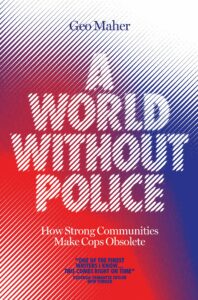
Geo Maher, A World Without Police: How Strong Communities Make Cops Obsolete
Verso, August 24
What would law enforcement and public life look like without police? The Black Lives Matter protests of 2020, along with the further organizing and conversations that those protests inspired, produced a blueprint for such a society, one that Geo Maher breaks down in A World Without Police as he advocates for police abolition alongside community safety. –from Lit Hub’s Summer Nonfiction Preview
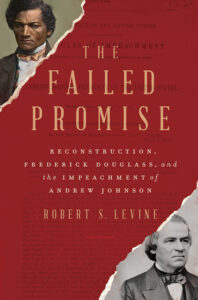
Robert Levine, The Failed Promise: Reconstruction, Fredrick Douglass, and the impeachment of Andrew Johnson
W.W. Norton, August 24
Robert S. Levine, Distinguished University Professor at the University of Maryland, provides a well-researched study of the presidency and impeachment of Andrew Johnson. Levine brings the leadership of Frederick Douglass and other African American activists into clear view, providing a detailed deconstruction of post-Civil War America that considers the failed promise of Black equality and its lasting reverberations. –from Lit Hub’s Summer Nonfiction Preview
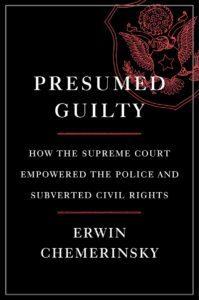
Erwin Chemerinsky, Presumed Guilty: How the Supreme Court Empowered the Police and Subverted Civil Rights
Liveright, August 24
Erwin Chemerinsky continues his career of groundbreaking research into civil rights with Presumed Guilty, which looks at the foundations of a society that tolerates racist policing. Chemerinsky finds, in particular, that a series of Supreme Court decisions driven by conservative justices enabled police to take violent, and sometimes deadly, actions, particularly against communities of color. –from Lit Hub’s Summer Nonfiction Preview
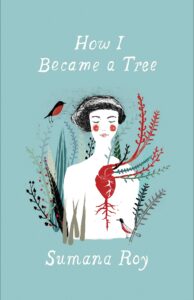
Sumana Roy, How I Became a Tree
Yale University Press, August 31
“I was tired of speed,” Sumana Roy writes, “I wanted to live to tree time.” In How I Became a Tree, Roy blends literary criticism, philosophy, and botanical study to contemplate humanity’s engagement with the natural world, and consider what it means to emulate trees themselves. –from Lit Hub’s Summer Nonfiction Preview

Jo Hamya, Three Rooms
HMH, August 31
The narrator of Jo Hamya’s debut novel has a familiar goal: to “afford a flat, not just a room, and then to settle in it and invite friends to dinner.” But as a 21st-century worker, a path there—to stability, independence, permanence—seems near impossible. We follow the narrator from living in a rented room at Oxford as a research assistant, to a rented couch as a temp at a high-powered magazine, to finally, exhausted, moving back in with her parents. (Hamya gives us send-ups of academia and media along the way.) It’s an anti-coming of age story, a bleak portrait of a generation for whom a “room of one’s own” lingers permanently out of reach. –WC (in Lit Hub’s Summer Fiction Preview)
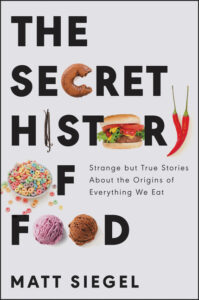
Matt Siegel, The Secret History of Food: Strange and True Stories About the Origins of What We Eat
Ecco, August 31
We’re likely all a little conversationally rusty at the moment, so a collection of surprising food histories—collected from ancient and obscure sources—sounds like the perfect thing to liven up your dinner party repertoire. (And if you’re looking for more reasons to love ice cream, The Secret History of Food makes the case that in addition to being the perfect summer treat, it also helped defeat the Nazis.) –from Lit Hub’s Summer Nonfiction Preview
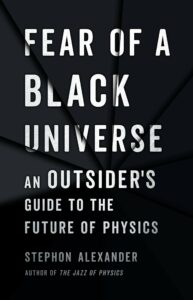
Stephon Alexander, Fear of a Black Universe: An Outsider’s Guide to the Future of Physics
Basic Books, August 31
Stephon Alexander, a professor of physics at Brown University and the 2020 president of the National Society of Black Physicists, dives headfirst into the mysteries of our universe. Fear of a Black Universe not only unpacks the poetry of theoretical physics but also critiques the glaring homogeneity of the field. Alexander merges the personal with the scientific in this compelling guide. –from Lit Hub’s Summer Nonfiction Preview
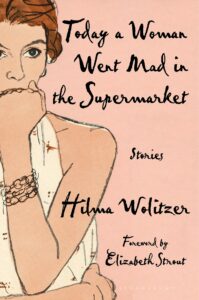
Hilma Wolitzer, Today a Woman Went Mad in the Supermarket
Bloomsbury, August 31
In the foreword to this collection, Elizabeth Strout informs us that Hilma Wolitzer published her first literary work (a poem about winter) at the age of nine, in a publication run by the New York City Department of Sanitation. Wolitzer is now 91, and the author of many books, including this brilliantly-titled collection, which collects mostly short stories written in the ’60s and ’70s, but also a new story—so new it includes Zoom. –ET
SEPTEMBER
Jonathan Bate, Bright Star, Green Light: The Beautiful Works and Damned Lives of John Keats and F. Scott Fitzgerald
Yale University Press, September 1
If you need further evidence that we’re definitively past the age of the poet/novelist as rock star (would that we weren’t), it’s right here in Jonathan Bate’s Bright Star, Green Light; it’s amazing, really, that this particular juxtaposition—of two “glamorous” and tragic literary superstars—hadn’t already happened as a full-length, dual biography. Is there more to say about the “beautiful works and damned lives” of Keats and Fitzgerald? Well, if read side-by-side, as cautionary tales of genius, excess, and disappointment, the answer is YES. –JD
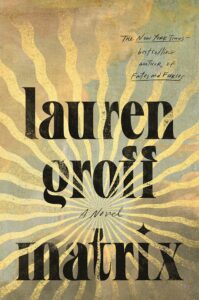
Lauren Groff, Matrix
Riverhead, September 7
Groff’s much-anticipated latest is an engrossing, lyrical reimagining of the life of Marie de France, a Medieval poet about which almost nothing is actually known. In Matrix, Marie begins as an awkward, half-royal bastard who is cast out of the court of Queen Eleanor, whom she passionately loves, and sent to be the prioress of a poor abbey, whose nuns are all but dead. But Marie—defiant, compelling, almost otherworldly—will transform her circumstances bit by bit, seeking to win Eleanor’s favor, and soon also seeking to win power for herself. –ET

Maggie Nelson, On Freedom
Graywolf, September 7
Maggie Nelson is an expert at distilling whatever topic she tackles into crystalline prose. She is the queen of the effortless jumping off point, catapulting her readers into the far reaches of Big Questions. In Bluets, it was love and suffering filtered through the color blue. In The Argonauts, she gave us the story of a pregnancy that branched out into an exploration of identity, caretaking, and family. Now, as the title suggests, she has turned her attention to freedom. What is it? Who has it? And, more specifically, how does it relate to art, sex, drugs, and climate? –KY
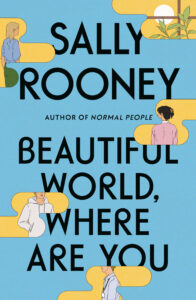
Sally Rooney, Beautiful World, Where Are You
FSG, September 7
Sally Rooney’s newest novel is a Sally Rooney novel, which means that a) it will include contemporary philosophy and tragicomic love affairs and b) will be smarter than it needs to be and c) everyone will read and talk about it no matter what. This version of the Sally Rooney novel is presented in long emails between two female friends . . . one of whom is a mega-successful and somewhat imperious Irish writer who has had a nervous breakdown because of her popularity. Delicious. –ET
Atticus Lish, The War for Gloria
Knopf, September 7
Lish’s debut novel, Preparation for the Next Life, published by Tyrant, garnered acclaim (and a PEN/Faulkner Award for Fiction) for its depiction of life and love at New York’s margins, and for Lish’s particular gift for taut, crackling prose. His follow-up, The War for Gloria, is told from the perspective of a teenage boy determined to care for his mother in the wake of her ALS diagnosis, and amid the re-emergence of his estranged father. It promises to be a heartbreaking story, superbly told. –JG

Robert Olen Butler, Late City
Atlantic Monthly, September 7
In Pulitzer Prize-winner Robert Olen Butler’s latest novel, a 115-year-old former newspaperman lies in bed, waiting to die, as the 2016 election results come in and he tells God (who really wants to know, for the record) about his long life, and the miraculously changing world. –ET
Colm Tóibín, The Magician
Scribner, September 7
The tenth novel from the Booker Prize-winning author of The Master and Brooklyn is an intimate portrait of one of the 20th century’s most intriguing literary figures: Thomas Mann. As he did with Henry James in 2004’s The Master, Tóibin blends the factual with the imagined—following Mann and his complex family through the first world war, the rise of Hitler, World War II, and exile—to conjure the rich inner life, and repressed sexuality, of a man “whose gift is unparalleled and whose life is driven by a need to belong and the anguish of illicit desire.” –DS

Simone de Beauvoir, tr. Sandra Smith, Inseparable
Ecco, September 7
Here’s a treat for all the Simone de Beauvoir fans out there—and a great foray into her work for those not yet christened. Based on de Beauvoir’s childhood friendship (and possibly more than friendship) with Zaza Lacoin, de Beauvoir deemed this one “too intimate” to publish during her lifetime. Also, according to the AFP, Jean-Paul Sartre “held his nose” at the book. Both of these facts have assured my readership, despite the story’s inevitable tragic ending. –ES

Qian Julie Wang, Beautiful Country: A Memoir
Doubleday, September 7
Qian Julie Wang’s memoir recounts her childhood in America as an undocumented immigrant. The facts of her family’s life are an indictment of the US—forced poverty, lack of healthcare, sweatshop labor. Through it all, she finds solace in books (“I read until my loneliness dulled, and I felt myself to be in the good company of all my vibrantly colored, two-dimensional friends”), which explains why Wang, now an attorney, felt so compelled to write this one that she composed it on her daily subway commute. –ES

Carla Power, Home, Land, Security: Deradicalization and the Journey Back from Extremism
One World, September 7
Insofar as we’ve living in era of widespread and rapid radicalization—at home and abroad—one can only hope we’re approaching a new era of deradicalization. But to get there, of course, we need to understand the ways in which toxic ideologies have so readily seeped into the cracks of 21st-century life. Such is the project of Carla Power’s Home, Land, Security, which not only maps the manifold rise of extremism—from ISIS to neo-Nazism and more—but looks at how we might move on from the seemingly ubiquitous hate we live with. –JD
Phoebe Robinson, Please Don’t Sit on My Bed in Your Outside Clothes: Essays
Tiny Reparations Press, September 7
I’ve been a fan of Robinson since the debut of her podcast with Jessica Williams, 2 Dope Queens. Her WNYC Studios podcast, Sooo Many White Guys, was also a delight. I am more than ready to dive into Robinson’s third essay collection, which promises to explore “human connection, race, hair, travel, dating, Black excellence, and more.” Robinson’s narrative voice is like the best friend you can instantly vibe with, no matter how long you’ve been apart. –VW
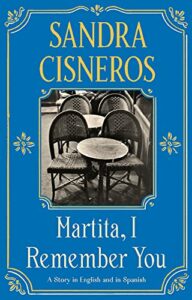
Sandra Cisneros, tr. Liliana Valenzuela, Martita, I Remember You/Martita, te recuerdo
Vintage, September 7
One of the most memorable books I was assigned in high school is Sandra Cisneros’ The House on Mango Street, which captured the feeling of becoming oneself so beautifully. So I am particularly excited for her new book, Martita, I Remember You, which tells the story of Corina, a young woman who leaves her Mexican family in Chicago to pursue her literary dreams in Paris. Of course, it’s not the life she imagines for herself. But the bright spot is that she meets Martita and Paola, and the three form a fierce friendship. Over time, they drift apart, but Corina’s discovery of an old letter brings it all back. It also feels special that this book will tell the story side by side in Spanish. –KY
adrienne maree brown, Grievers: a novella
AK Press, September 7
The premise of this novella might hit a little close to home. Grievers tells the story of a mysterious illness that overtakes a city. The sickness itself, in this world, is that of grief. Our hero, Dune, is mourning the loss of her mother as she tries to understand what has befallen her home. She takes up the work of her late father, a man who had been tracking the dying and desperately trying to find the connecting thread. While Grievers is her first novel, adrienne maree brown is also the author of Octavia’s Brood and Pleasure Activism. She is a singular writer, a visionary whose work is always a bold act of resistance, and I can’t wait to watch her unleash her powers through fiction. –KY
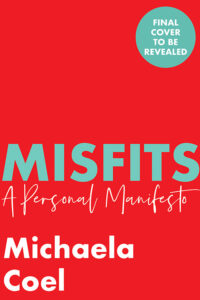
Michaela Coel, Misfits: A Personal Manifesto
Henry Holt, September 7
Michaela Coel is brilliant, and I refuse to hear any arguments otherwise. She first caught my attention with her BBC Channel 4 show Chewing Gum, which was so hilarious I made (read: demanded) my boyfriend watch it. Her recent HBO show, the critically-acclaimed I May Destroy You, is an equal parts heartbreaking and enlightening drama about dealing with and overcoming sexual assault. In this new memoir, Coel issues a call to action for “misfits” to proudly claim their creativity and power. –VW
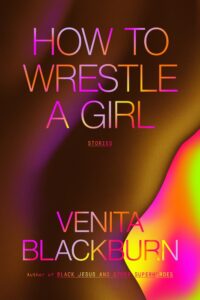
Venita Blackburn, How to Wrestle a Girl
MCD x FSG, September 7
Venita Blackburn has a particularly engrossing way of writing about growing up in all its hilarity, grotesquerie, and cruelty, so I can’t wait to read her sophomore collection, How to Wrestle a Girl. Many of the stories follow a teenage girl navigating grief and burgeoning queerness. Read Blackburn’s story “Biology Class” and see how long you can resist pre-ordering this one. –JG

Joy Harjo, Poet Warrior
W. W. Norton, September 7
Joy Harjo, the first Native American to serve as US poet laureate, bares her soul in this follow-up to 2012’s Crazy Brave. Harjo examines how she fully embraced her literary identity, through recollections of ancestors and family, poetry and music she devoured as a child, and the natural world. Harjo’s poems are lyrical, vivid, and lush—qualities which translate to her prose. –VW
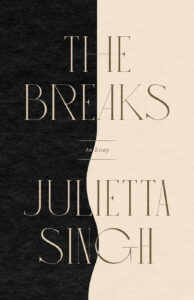
Julietta Singh, The Breaks: An Essay
Coffee House, September 7
The climate crisis, state-sanctioned racism, the long coils of colonialism… These are among just a few of the harsh realities Julietta Singh confronts in The Breaks, a book-length epistolary essay written to her 6-year-old daughter, that also interrogates what it means to be a queer, brown parent in contemporary America. But despite myriad catastrophes, both personal and political, Singh finds reasons for hope in the possibility of community. –JD

Christopher Sorrentino, Now Beacon, Now Sea: A Son’s Memoir
Catapult, September 7
The only thing harder than grappling with an increasingly distant and difficult parent is coming to terms with losing that parent. So it was for writer Christopher Sorrentino, who tells the long and winding story of his mother, a Puerto Rican immigrant who found her way in the rich, vibrant world of the midcentury New York arts scene, a life not necessarily suited to motherhood. As he grieves, so too does Sorrentino come to understand the messiness of any given life, and how hard it can be to understand those we love the most. –JD
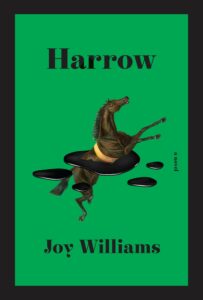
Joy Williams, Harrow
Knopf, September 14
Joy Williams hasn’t published a novel since 2000’s The Quick and the Dead (a finalist for the Pulitzer), so our anticipation for Harrow is hard won. The novel tells the story of a post-apocalyptic world through the eyes of Khristen, a teenager whose mother believes she was “marked by greatness” when she momentarily died as a baby. After Khristen’s mother disappears, she finds herself at a crumbling “resort” populated by a “gabby seditious lot, in the worst of health but with kamikaze hearts, an army of the aged and ill,” plotting revenge on the corporate plunderers of nature. Really, if “post-apocalyptic Joy Williams” doesn’t sell you on this one, you and I don’t have the same values. –JG

Gayl Jones, Palmares
Beacon Press, September 14
The first novel in two decades by literary legend Gayl Jones, who was discovered in the 1970s by Toni Morrison—who, by the way, said of Jones’s debut, Corregidora, “No novel about any black woman could ever be the same after this.” Jones has been a writer’s writer for a long time, but last year, she self-published Palmares, a sprawling adventure novel set in 17th-century Brazil and focusing on a young girl who escapes from slavery to the eponymous and imperiled fugitive slave settlement, only to have the rights picked up by Beacon Press within a few months. “Plot is beside the point in Palmares,” Calvin Baker wrote in The Atlantic, “the book unfolds on a plane of consciousness where the things achieved are shifting relationships and states of being. Ultimately, the book is about taking full possession of the entire Black experience, including tenderness—and Jones’s quest to free the individual Black voice.” Sounds like a Great American Novel to me. –ET
Evan Osnos, Wildland: The Making of America’s Fury
FSG, September 14
Having spent years covering China for outlets like the Chicago Tribune, where he worked as the Beijing bureau chief, and The New Yorker, where he was the China correspondent since from 2008 to 2013, Evan Osnos now turns his attention to a more local story: America’s political shifts as exemplified by the residents of Clarksburg, West Virginia, Greenwich, Connecticut, and Chicago, Illinois. From these cities, all places to which Osnos has a personal connection, he launches an investigation into the political mood of the country and how it has changed over the course of the last two decades. Through the stories of individuals in these cities, Osnos aims to explore what, exactly, happened to the American psyche in that time, and what value those lessons hold for us going forward. –CS
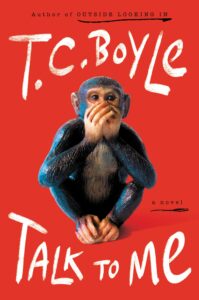
T.C. Boyle, Talk to Me
Ecco, September 14
A PEN/Faulkner Award-winning novelist and one of America’s finest short story writers, T. C. Boyle’s darkly comic, Dickensian fiction has spanned genres and epochs—from 18th-century Scotland to an environmentally-devastated future California—and tackled the lives of historical figures like Mungo Park, John Harvey Kellogg, Frank Lloyd Wright, and Alfred Kinsey. His new novel, Talk to Me, is the story of Guy Schermerhorn, an animal behaviorist who teaches a juvenile chimp to speak in sign language. When Aimee Villard, an undergraduate at Guy’s university, applies to become his assistant, “a romantic and intellectual attachment soon morphs into an interspecies love triangle.” An interspecies love triangle, you guys. –DS
Natasha Brown, Assembly
Little, Brown, September 14
A sharp, experimental novel about a Black British woman who did everything right, and yet still, when faced with her mortality, isn’t sure her life is worth hanging on to. Clocking in at a mere 112 pages, this critique of British racism and the “culture of more” can be read in an afternoon, and should be. –ET

Zoe Whittall, The Spectacular
Ballantine, September 14
I love a multigenerational family novel, and Zoe Whittall’s latest—which brings together a young musician and her estranged mother and grandmother as they attempt to understand one another—sounds extremely promising. Torrey Peters wrote that The Spectacular‘s characters “came to feel like my family.” (And besides her three previous novels and her television writing, Whittall is also a poet, and I’ve long maintained that poets write the best novels.) –JG
Frank Bidart, Against Silence
FSG, September 14
Frank Bidart is a gift—we are lucky to have had him writing poetry for a half century. Against Silence is his eleventh collection, and continues his lifelong navigation of the uncertain spaces between haunting and love, and the fertile gap between words and the world. –JD
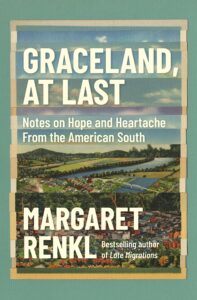
Margaret Renkl, Graceland, at Last: Notes on Hope and Heartache from the American South
Milkweed, September 14
If you haven’t read Margaret Renkl’s Late Migrations, I suggest you start there. You’ll have plenty of time to fall in love with this writer before her new book comes out in the fall. If you are already an avid reader of her column in The New York Times, then perhaps you will recognize some of the 60 pieces in this collection. Graceland, At Last takes us to Renkl’s homeland and shines a light on life in the South, its complexities and its hopes. In these pages, you will find Black Lives Matter organizers, churches sheltering the homeless, and even helpful sheep. Reading Margaret Renkl is like seeing the world in color for the first time. –KY
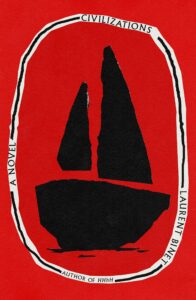
Laurent Binet, tr. Sam Taylor, Civilizations
FSG, September 14
It would be hard to come up with a more compelling novel synopsis than this: Following Christopher Columbus’s desultory and essentially failed attempt to colonize the so-called New World, the Incan emperor Atahualpa seizes the would-be conqueror’s ships, sails to Europe, and foments a revolution. (Oh, and 500 years prior to that a woman-led band of Vikings makes it all the way to Panama.) Yes. –JD
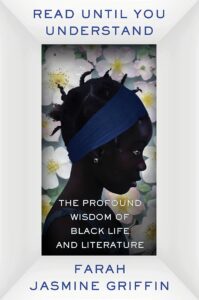
Farah Jasmine Griffin, Read Until You Understand: The Profound Wisdom of Black Life and Literature
W. W. Norton, September 14
One of our favorite genres here at Lit Hub is the reading memoir, so we’re particularly excited for Farah Jasmine Griffin’s homage to the great works of Black genius that have defined her life. From Malcolm X and Toni Morrison to Marvin Gaye and Romare Bearden, Griffin—who is the inaugural chair of the African American and African Diaspora Studies Department at Columbia University—honors here the advice of her late father, who died when she was nine, but left a note saying, “read until you understand.” Amen. –JD
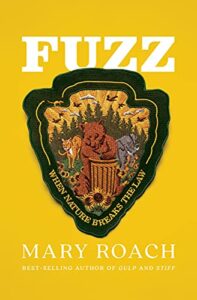
Mary Roach, Fuzz: When Nature Breaks the Law
W. W. Norton, September 14
Mary Roach’s science writing is never boring, and I expect that to hold true for her investigation of human-wildlife conflict. Perhaps not for the faint of heart (expect mass animal death), the book is ultimately working toward what healthy co-existence would look like, which seems, well, very important. –ES
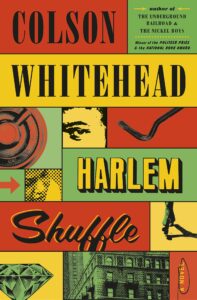
Colson Whitehead, Harlem Shuffle
Doubleday, September 14
The latest novel from the most garlanded man in American letters (over the course of the last decade Whitehead has won two Pulitzers, the National Book Award, the Kirkus Prize, the Orwell Prize, the Dos Passos Prize, the Carnegie Medal for Excellence in Fiction, the Arthur C. Clarke Award, the Library of Congress Prize for American Fiction, and a Guggenheim) is yet another tonal and genre pivot: a riotous story of “heists, shakedowns, and rip-offs” set in early 1960s Harlem, about a struggling used furniture salesman (and son of a notorious local hoodlum) who, in trying to provide for his growing family, gets sucked back into a world of colorful-but-shady characters and outlandish criminal schemes. –DS
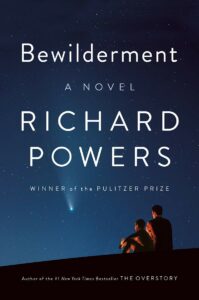
Richard Powers, Bewilderment
W. W. Norton, September 21
This long-anticipated new work by the author of Overstory, which won the 2019 Pulitzer Prize in Fiction, follows astrobiologist and widower Theo Byrne as he searches for extraterrestrial life and raises a 9-year-old son with a misunderstood health condition. Powers is exceptional at grappling with the ways that cosmic questions leave their mark on our everyday domestic lives, and this portrait of a father-son relationship is no exception; with plans for a movie already in the works, this promises to be one of the biggest releases of the fall. –CS
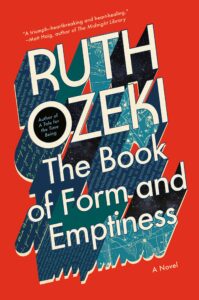
Ruth Ozeki, The Book of Form and Emptiness
Viking, September 21
Ruth Ozeki’s A Tale for the Time Being changed how I thought about structure in literature; now, Ozeki is back with a similarly inventive novel, this time about thirteen-year-old Benny Oh, who begins to hear voices from the objects in his house. The voices lead him to a public library where his world opens up. It’s a coming-of-age story about a boy finding his voice through books, using Zen principles of interconnectedness to examine our relationship with the material world around us. –WC

Sjón, Red Milk
MCD, September 21
Red Milk begins with a dead body and goes on to tell the story of an Icelandic neo-Nazi, Gunnar Kampen (who’s based on the actual leader of a fringe Nazi group). Part biography and part mystery, the novel explores the process of radicalization and the far-reaching legacy of fascism. Maybe not the most uplifting novel on this list, but undeniably important. –JG

Amia Srinivasan, The Right to Sex: Feminism in the Twenty-First Century
FSG (Sept 21)
How should we think about sex? How do we balance pleasure with ethics, private with public? What about post-#MeToo? In this staggering debut, philosopher, professor and London Review of Books contributing editor Amia Srinivasan reaches into the past and future to grapple with tough questions and ask what true sexual freedom might look like. –WC

Rick Bragg, The Speckled Beauty: A Dog and His People, Lost and Found
Knopf, September 21
Why do we love the bad, bad dogs in our lives? Is it because they delight in rolling in carrion? Bark at nothing out the living room window? Make terrible smells when we’re least expecting it? For Rick Bragg, it was all of these things and more, as an unruly stray named Speck wandered into his life at exactly the right time, bringing the kind of love only a dog can into a life that desperately needed it. At the time of Speck’s arrival over the back ridgeline, Bragg was dealing with chemotherapy, kidney failure, and a recurring pneumonia that had him down and out, physically and emotionally. But Speck refused to accept that. Good dog, Speck. –JD
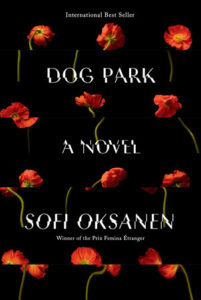
Sofi Oksanen, tr. Owen Frederick Witesman, Dog Park
Knopf, September 21
Following her incredibly popular Purge, Sofi Oksanen gives us another propulsive thriller about a woman unable to forget her lost child and the web of lies she’s built around herself. A novelist and playwright, Oksanen is one of the most awarded literary authors in Scandinavia; now, we get to experience the phenomenon. –WC
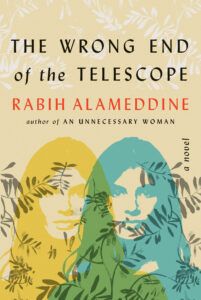
Rabih Alameddine, The Wrong End of the Telescope
Grove, September 21
National Book Award finalist and Dos Passos Prize winner Rabih Alameddine (An Unnecessary Woman) is a gorgeous writer—witty and humane, fiery and profound. I was spellbound by his most recent novel, 2016’s The Angel of History—an intense, fragmented portrait of a man in emotional and psychological crisis, set over the course of one night in the waiting room of a psychiatric clinic—and will be tearing through his new one as soon as I can get my hands on it. The story of Mina, a Lebanese doctor long settled in the U.S. and estranged from her family, who travels to the island of Lesbos to help refugees and confront her past. Once there, Mina treats an undaunted Syrian woman who is dying from liver cancer, and bonds with the matriarch over their shared desire to protect their families from the truth. –DS

Kevin Young, Stones
Knopf, September 21
Kevin Young, whose impressive resume includes working as the poetry editor for The New Yorker and director of the Smithsonian’s National Museum of African American History and Culture, in addition to authoring 14 other books of poetry and prose, is back with a new collection centered on the American South and the stories of his ancestors. Young is an exquisite writer of grief, history, and the subtle ways that family connections reach across time, and this new collection offers plenty of moments for rest, reflection, and learning. –CS

Jon McGregor, Lean Fall Stand
Catapult, September 21
It would be hard to imagine a setting further away from McGregor’s Booker shortlisted 2017 novel, Reservoir 13—a beautiful, riveting story told about a quiet English village—then the harsh Antarctic of Lean, Stand, Fall. Polar surveyor Doc Wright holds the key to an on-ice disaster that has left tragedy in its wake—but despite the tender care of his wife Anna, Wright is locked into an internal world that makes it impossible for him to communicate any of the crucial details. –JD
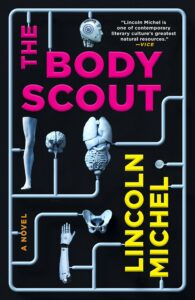
Lincoln Michel, The Body Scout
Orbit, September 21
Most *good* science fiction is almost, by definition, *timely* science fiction, as it imagines its way forward into the world to come, based on the world that is—so it is with Lincoln Michel’s The Body Scout. Set in a near-future New York riddled by pandemics and climate catastrophes, in which gene-deep body-modification is the order of day, the eponymous Kobo gets caught up in the high-stakes corruption of Big Pharma baseball and the inevitable murder that comes with it. –JD
Percival Everett, The Trees
Graywolf, September 21
The somehow still underrated Percival Everett follows up his formally ambitious 3-in-1 novel Telephone with The Trees, a notional thriller set around a Mississippi murder investigation that slowly reveals a puzzling, nationwide web of racist violence. With customary ferocity, Everett’s taut narrative pacing leads us through revelations of the all-too-familiar white supremacy that undergirds so much of American life. –JD
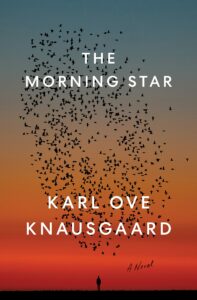
Karl Ove Knausgaard, tr. Martin Aitken, The Morning Star
Penguin Press, September 21
Every time that Karl Ove Knausgaard has a book coming out, am I required to blurb it on Lit Hub? No! But I do, because I’m a Knausgaard stan. In The Morning Star, the sometimes-beloved chronicler of everything returns to fiction with the same intellectual curiosity and unravelling of consciousness (and the same careful attention to domestic life) that he applies to his nonfiction. One night in August, a new star appears in the sky—suddenly, apocalyptically; not even astronomers know what it is. And with suspense and mystery in the sky, literally, we follow several narratives to see how the world, and their lives, have changed forever. –EF
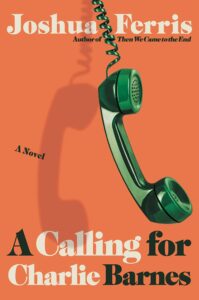
Joshua Ferris, A Calling for Charlie Barnes
Little, Brown, September 21
The fourth novel from the author of the rhetorically innovative Then We Came to an End bears all the hallmark Joshua Ferrisisms his readers have come to love: a big central conceit, a sincere desire to tell us “how we live now,” and a preternatural ability to explore the heaviest of subjects with the lightest of touches. The story of a lifelong schemer and fantasist spinning from the seeming conclusions of the great recession and a cancer diagnosis into an accidental second chance and surprisingly successful search for meaning, Charlie Barnes is a compassionate book with good intentions, rich both in heartbreak and that increasingly rare thing: hope. –EF
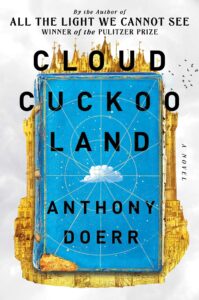
Anthony Doerr, Cloud Cuckoo Land
Scribner, September 21
Novelists don’t exactly come out of nowhere (it’s a thankless lifelong vocation!), but it certainly feels like Anthony Doerr’s sophomore novel, All the Light We Cannot See, burst into the literary world as a fully formed publishing phenomenon. Not only did it win a Pulitzer Prize and get shortlisted for the National Book Award, it spent 130 weeks on the New York Times bestseller list. So yeah, his follow up, Cloud Cuckoo Land—set across time and space, from medieval Constantinople to an interstellar spaceship—is highly anticipated, by readers and critics alike. –JD
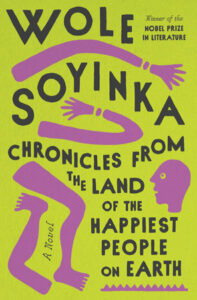
Wole Soyinka, Chronicles from the Land of the Happiest People on Earth
Pantheon, September 21
In a fall books season that feels as lousy with literary superstars as any in past memory, a new novel by Nobel laureate Wole Soyinka ranks as one of the biggest publishing events of the year. As ever, Soyinka explores his overarching concerns—power, corruption, justice (and the absence thereof)—in this literary whodunnit of black market body-snatching, political grift, and international intrigue. –JD
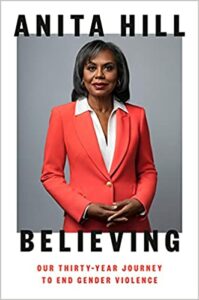
Anita Hill, Believing: Our Thirty-Year Journey to End Gender Violence
Viking, September 28
In 1991, Anita Hill testified against Clarence Thomas. Thirty years later, gendered violence, intersecting with other axes of power, is just as prevalent as when Hill gave her testimony. Hill blends personal experience with deep policy research to create a sweeping survey of institutionalized misogyny—and a call to action. –WC
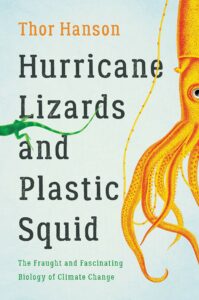
Thor Hanson, Hurricane Lizards and Plastic Squid: The Fraught and Fascinating Biology of Climate Change
Basic Books, September 21
We’re all pretty aware of the large-scale, apocalyptic consequences of climate change (and if we’re not, we should be)—but what of the smaller, more subtle ways in which nature is adapting itself to the overheating planet? Pelicans moving north, sea urchins heading south, lizards growing larger toe pads to better grip during hurricanes… If it wasn’t all so scary, biologist Thor Hanson’s investigation into the rapidly changing natural world would be fascinating. But it’s not. It’s an urgent warning. –JD

Laurie Woolever, Bourdain: The Definitive Oral Biography
Ecco, September 28
It’s been just over three years since Anthony Bourdain died, and it still sucks (don’t even try to do the math on who’s still living). His generosity, his candor, his humanity—these are all virtues we should aspire to everyday. And if we don’t have the man himself, anymore, to show us the way, we can at least learn a bit more about who he was through the stories of his many, many friends, collected here by Laurie Woolever. –JD
OCTOBER
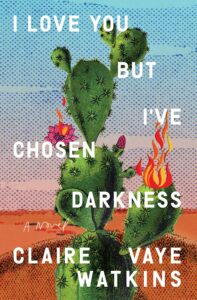
Claire Vaye Watkins, I Love You But I’ve Chosen Darkness
Riverhead, October 5
A strong candidate for the best book title of 2021, I Love You But I’ve Chosen Darkness is a darkly comic novel about a woman who leaves behind her husband and baby to step back into the mire of her past. A temporary reprieve from the stresses of new motherhood becomes an extended stay in the Mojave Desert, where the ghosts of her previous life await. Battleborn remains, to my mind, one of the finest short story collections of the 21st century, and Gold Fame Citrus was a hypnotically beautiful and terrifying work of dystopian fiction, so my hopes are sky high for this new one. –DS
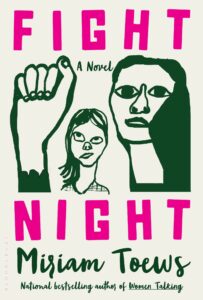
Miriam Toews, Fight Night
Bloomsbury, October 5
“Dear Dad, How are you? I was expelled.” So begins the latest novel from the author of Women Talking and All My Puny Sorrows, which will soon unspool into a relentlessly entertaining novel about three generations of women living under one roof, most of it rambunctiously reported by Swiv. While you will find Toews’ trademark themes of survival and community here, this novel is an absurdist comedy that will make you giggle into your soup. –ET
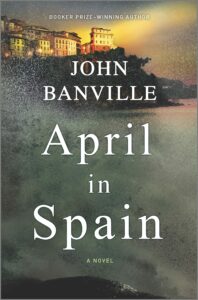
John Banville, April in Spain
Hanover Square, October 5
April in Spain, Banville’s new addition to his Detective Strafford crime series, begins with the pathologist Quirke in San Sebastian, Spain, as he makes a startling discovery: that a woman thought to be murdered long ago may still be alive. After alerting Detective St. John Strafford, Quirke finds himself unexpectedly entangled in the story of her disappearance. The novel promises to be a compelling addition to Banville’s extensive body of work. –CS
Sarah Ruhl, Smile: The Story of a Face
Simon & Schuster, October 5
Playwright and literal (MacArthur) genius Sarah Ruhl suffered Bell’s palsy after delivering twins, completely paralyzing the left side of her face. While doctors assured her that 90 percent of patients have a full recovery, Ruhl was in the ten percent. Her face became asymmetrical: she was unable to close her left eye, she worried about conveying love to her young children, and when paparazzi shout “Smile!” at her on the red carpet for her play’s Broadway premiere, she can’t. Smile is very much “the story of a face” and an exploration of how we communicate our interior feelings to the outside world. As a patient, a mother, and an artist, Ruhl unpacks the intentions of the body, postpartum depression, spiritual life, and pain in a world that demands symmetry. –EF
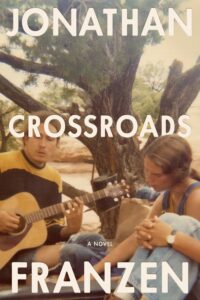
Jonathan Franzen, Crossroads
FSG, October 5
As you no doubt remember from seeing it on Twitter, Jonathan Franzen is “widely recognized as the leading novelist of his generation” and also “often described as a teller of family stories.” Whatever you may feel about that first bit, there’s no arguing with the fact that Crossroads, the first in an expected trilogy entitled A Key to All Mythologies, is an in-depth portrait of the Hildebrandt family, each member of which is desperate for freedom in a different way—though for most it is at least tangentially related to Crossroads, the counterculture church group that is the site of the patriarch’s greatest shame. It’s a doorstop at 580 pages, but like most of Franzen’s novels, it goes down smooth. –ET

Amor Towles, The Lincoln Highway
Viking, October 5
The latest from the bestselling author of A Gentleman in Moscow and Rules of Civility is set over ten days in June of 1954, when eighteen-year-old Emmett Watson is released from a work camp where he’d spent a year for involuntary manslaughter. Having little to return home to, his plan is to head west—but he is soon surprised by two stowaways from the camp, who have other ideas. Epic road trip Americana! –ET

James Han Mattson, Reprieve
William Morrow, October 5
Quigley House is a full-contact haunted house, and four contestants will win a cash prize if they don’t shout the safe word “reprieve.” Spoiler! Before they can complete the challenge, someone breaks into the cell and kills one of the contestants. But as each character’s story unfolds and overlaps, revealing obsessions, prejudice, and secrets, Reprieve transforms from a classic horror story to a portrait—and social critique—of contemporary American life. –EF
Lucy Corin, The Swank Hotel
Graywolf, October 5
At long last, a new book from Lucy Corin, whose writing never fails to be uncanny and diamond sharp and deeply moving when you least expect it. Graywolf describes this novel, which is set during the 2008 financial crisis, as an “acrobatic, unforgettable, surreal, and unexpectedly comic novel that interrogates the illusory dream of stability that pervaded early twenty-first-century America.” Yep, sounds like Corin, and I can’t wait to get my hands on it. –ET
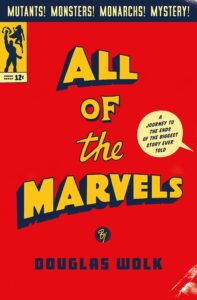
Douglas Wolk, All of the Marvels: A Journey to the Ends of the Biggest Story Ever Told
Penguin Press, October 5
Yes, yes, I’m a nerd. (Not only am I actively excited about this book coming out about the extended Marvel Universe, but I admittedly chortled with glee at the title’s pun.) And even though Sally Rooney says we’re not supposed to like superhero movies, there is always a special place in my heart for Marvel stories. The totally unique and amazing thing about comic book characters is that they stand on the shoulders of all the writers who have had a hand in crafting their stories. (Like, say, Ta-Nehisi Coates penning Captain America.) They are a new kind of oral history. They change with our times. And now Douglas Wolk has given himself the seemingly impossible task of reading all 27,000 comics and reflecting on this very specific microcosm of our culture. –KY
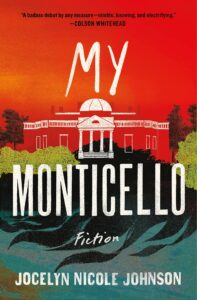
Jocelyn Nicole Johnson, My Monticello
Henry Holt, October 5
If you don’t know, Monticello is Thomas Jefferson’s famous home and plantation, set on a hill in Charlottesville, Virginia. Considering that Jefferson enslaved over 600 people in his life, including Sally Hemings, who bore his children, it’s something of a fraught landmark. In the title novella of Johnson’s debut collection, Charlottesville is attacked by a white supremacist mob (um, again) and a group of citizens, including a young descendant of Hemings and Jefferson, take refuge in Monticello and try to rebuild there. This is poised to be one of the breakout debuts of the season. –ET
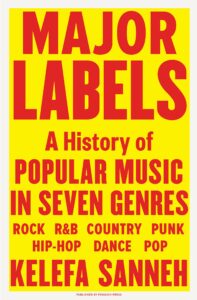
Kelefa Sanneh, Major Labels: A History of Popular Music in Seven Genres
Penguin Press, October 5
Kelefa Sanneh takes a very ambitious swing with this deep dive into a half century of American music, seeking to trace the evolution of popular music across seven genres: rock, R&B, country, punk, hip-hop, punk, dance music, and pop. As both an engine of commerce and the driving force behind myriad cultural shifts, popular music has shaped American society in ways we can only begin understand. But it would be hard to find a better guide than Sanneh to help us try. –JD
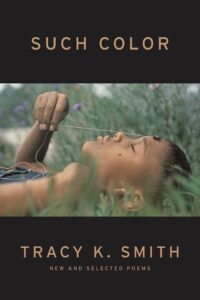
Tracy K. Smith, Such Color
Graywolf, October 5
I had the chance to meet Tracy K. Smith during a reading and book signing for 2018’s Wade in the Water. It was such a pleasure to hear Smith, who served as the 22nd Poet Laureate of the United States from 2017 to 2019, share the origin of that collection and her research process. This latest volume features new and selected poems, offering a sweeping overview of Smith’s illustrious career thus far. –VW
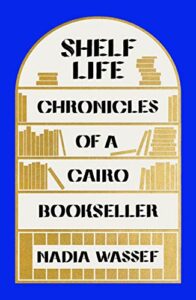
Nadia Wassef, Shelf Life: Chronicles of a Cairo Bookseller
FSG, October 5
The gripping story of three women who, against all odds, opened a successful independent bookstore in Cairo? Nadia Wassef’s memoir of the founding of Diwan—a store which now has ten locations and 150 employees—is very much for readers of Lit Hub. –JD
Stanley Tucci, Taste: My Life Through Food
Gallery Books, October 5
In the beloved Julie & Julia, Stanley Tucci plays the doting husband of Meryl Streep’s Julia Child. There’s this one scene where he’s proposing a toast. They’re hosting a Valentine’s Day dinner, and everyone’s got giant red felt hearts pinned to their shirts. Stanley Tucci stands and says, “Julia, you are the butter to my bread, and the breath to my life.” In his real life, the actor is also an avid foodie and the author of two cookbooks. Taste: My Life Through Food gets a touch more personal. In this new book, Stanley Tucci gives us, to quote the film, the “breath to my life” part of his obsession. There are anecdotes about growing up in Westchester and falling in love with his wife, told with his signature charm. Taste is a love letter to food—and the people who sit beside us at the dinner table. –KY
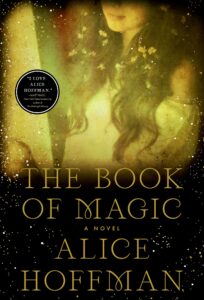
Alice Hoffman, The Book of Magic
Simon & Schuster, October 5
This fall, the Practical Magic series comes to a close. It’s time to say a fond farewell to the Owens women—but not without one final adventure and revelations of a few more family secrets. You, dear reader of this site and likely fellow Practical Magic fanatic, obviously already know that the crux of this cult classic is that the Owens family has a curse on them. Several generations ago, a woman named Maria Owens was spurned by a lover and cast a spell on herself to ward off heartbreak. As her bitterness grew, the spell transformed into a generations-long curse, ensuring that any man who falls in love with an Owens woman will die at the hands of the deathwatch beetle. At long last, in The Book of Magic, three generations travel to their ancestral land to try to break the spell. Alice Hoffman has given us such a gift with this series, and this final chapter is sure to be another heartfelt celebration of mothers and daughters and the magic of falling in love. –KY
Anne Carson, H of H Playbook
New Directions, October 5
Fans of Anne Carson, rejoice! From the iconic poet who penned Autobiography of Red comes a new retelling. In H of H Playbook, she tackles Herakles, Euripides’s Greek tragedy about that most famous of demigods who comes home from war and cannot adjust to civilian life: he goes mad, kills his family, and plans to commit suicide. His friend Theseus steps in and tries to show him that he is not beyond redemption and that his life is not without meaning. Anne Caron’s depth of knowledge about Greek mythology coupled with her poetic sensibility and illustrations is sure to breathe new life into this oft-told story. –KY
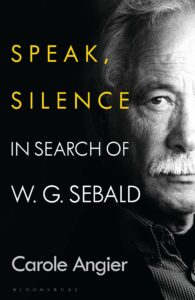
Carole Angier, Speak, Silence: In Search of W. G. Sebald
Bloomsbury, October 5
I can’t believe it’s taken this long for someone to publish a biography of W.G. Sebald, and I have high hopes for this work by Angier, who has previously written well-received biographies of Jean Rhys and Primo Levi, which her publisher describes as a “unique, ferociously original portrait that pushes the boundaries of biography just as its subject pushed the boundaries of fiction.” Digging the Nabokov reference, too. –ET
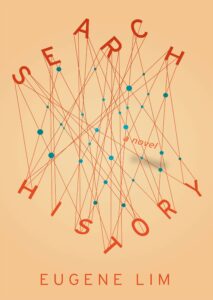
Eugene Lim, Search History
Coffee House, October 5
Eugene Lim’s fourth novel starts with a mourning friend deciding their dead friend Frank has been reincarnated as a dog. After that, it’s off to the races as an ensemble cast of both friends and enemies searches for dog-Frank. Search History is an absurdist depiction of the grieving process and the narratives we tell ourselves—and apparently there are lengthy digressions about AI-generated fiction and representation in the arts? I’m in. –WC
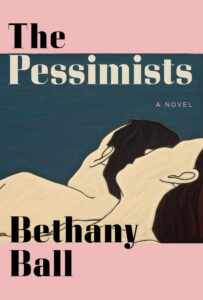
Bethany Ball, The Pessimists
Grove, October 12
One of America’s greatest contributions to world literature is the deeply entertaining, often debilitatingly sad genre of “shiny suburban facades hiding deep, dark secrets”—and with her second novel, Bethany Ball is proving herself a burgeoning master of the form. Set in a rich Connecticut town that seemingly revolves around an exclusive private school, The Pessimists plumbs the depths of unearned privilege and the moral entitlement it engenders: marriages fail, lives go sideways, and no one finds the happiness they think they deserve. –JD
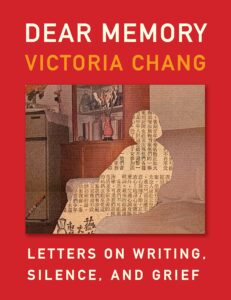
Victoria Chang, Dear Memory: Letters on Writing, Silence, and Grief
Milkweed, October 12
Poet Victoria Chang’s (incredible) Obit re-envisioned the form of the newspaper obituary to confront her many experiences of grief at her mother’s death. Now, Chang has assembled a collection of letters to family, past teachers, and fellow poets, as well as family memorabilia, creating not just a moving family history but a rumination on the creative and self-shaping act of remembering. –WC
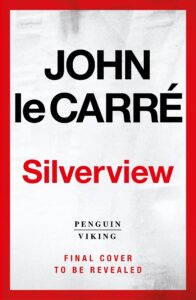
John le Carré, Silverview
Viking, October 12
The final novel by the late espionage fiction titan—finished just before his death in December of last year—follows a bookseller in a small English seaside town who becomes embroiled in a spy leak when a mysterious Polish émigré suddenly enters, and upends, his quiet coastal life. Described as a “mesmerizing story of an encounter between innocence and experience and between public duty and private morals,” le Carré’s swan song sounds like another deft and compelling evocation of the morally murky world of the Secret Intelligence Service. –DS

Jeanette Winterson, 12 Bytes: How We Got Here. Where We Might Go Next
Grove, October 12
Jeanette Winterson has always been lightyears ahead of everybody else. She embraces newness in the service of her stories. She has this incredible ability to take in threads of information and spin them into the tales she most wants to tell. I would argue that she actually wrote the first Internet novel over two decades ago. Her most recent novel, Frankissstein, is about the night Mary Shelley brought Frankenstein to life… and AI sex dolls. Honestly, I’m convinced that Jeanette Winterson doesn’t experience time in the same way that everybody else does because she can so seamlessly bring together ancient myth and modern-day technology. With her new book, she delves into the nonfiction side of this story, lending us her observant eye and agile mind. In 12 Bytes, she offers us a dozen smart and inventive essays on artificial intelligence, how it shapes love, and the way it can encroach on our lives. (For the record, autocorrect did attempt to make that “enrich our lives.”) –KY
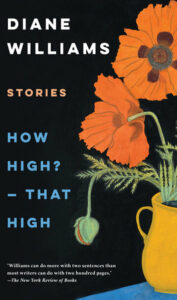
Diane Williams, How High? — That High
Soho Press, October 12
Williams, the founder and editor of the literary annual, NOON, presents a short story collection that promises to capture the spectrum of the human condition. If you peek at the book’s Goodreads page (I know, I know, we all hate Goodreads!), you’ll see that Jenny Lawson called it “strange and experimental” and “like translating poems from a language you don’t entirely know yet.” Call me intrigued! –VW

Donald Antrim, One Friday in April
W. W. Norton, October 12
In which the wonderful surrealist novelist and memoirist Donald Antrim tells the story of his battles with serious depression, and his suicidal thoughts, and argues for not only a re-romanticization of suicide, but a different framing—of suicide and suicidal ideation as an illness as opposed to merely an outcome—altogether. –ET

Susan Orlean, On Animals
Avid Reader, October 12
Susan Orlean’s delightful, drunken Twitter rant got us through one of the darkest weeks of Summer 2020, and this fall she’s bringing us a collection about the ways we live with animals—from household pets to those that end up on (your) plates. We meet a whale in Iceland who refuses to be free, a New Jersey woman with 23 pet tigers, snow dogs, and pigeons—each story told with Orlean’s careful research and extreme empathy, and the New Yorker pacing that makes each story feel profound, delightful, and like you’ve learned something brilliant to share at your next dinner party. –EF
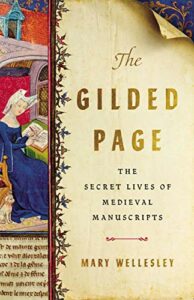
Mary Wellesley, The Gilded Page: The Secret Lives of Medieval Manuscripts
Basic Books, October 12
Did you know that Chaucer’s status as a government official was a significant factor in the survival of his manuscripts? Sure, he was talented, and The Canterbury Tales were a rip-roaring good time, but the longevity of illuminated manuscripts had as much to do with their material origins as with their quality (it also helped if one’s descendants had the wherewithal for proper storage). Mary Wellesley’s deep-dive into the production side of ancient texts sheds light on all the unheralded work behind the creation and preservation of some of the world’s finest book objects, from the binders and grinder to the lowly scribes who actually “wrote” the damn things. –JD
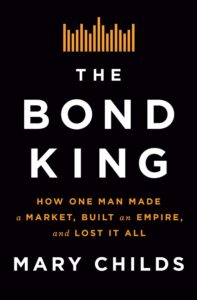
Mary Childs, The Bond King: How One Man Made a Market, Built an Empire, and Lost It All
Flatiron, October 12
I’m both disgusted and fascinated by the lives and times of billionaires, and there’s no one better than a Planet Money reporter to tell the story of the rise and (relative) fall of financial whiz kid Bill Gross in a way that’s compelling and legible even to someone as ignorant of all things stock and/or bond as I am. (Mary Childs explained NFTs to me, AMA. Actually, no. Ask her.) We should all be more aware of the horrifying impact of shadowy finance figures on our lives, and this book is a great place to start. –JG

Tamara Shopsin, LaserWriter II
MCD, October 12
Look, you either love the idea of a coming of age novel set in Tekserve (written by an honest-to-goodness ex-Tek), or you have no idea what I’m talking about and also probably don’t need eye cream yet. Either way, Tamara Shopsin is always worth a read. –ET
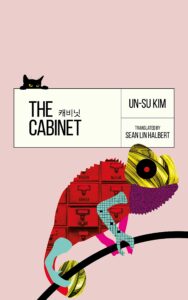
Un-Su Kim, tr. Sean Lin Halbert, The Cabinet
Angry Robot, October 12
I loved Un-Su Kim’s irreverent thriller The Plotters, which was published in English in 2019, so I was excited to learn that his very first novel is about to get the same treatment. The Cabinet concerns, well, a filing cabinet filled with the weirdest symptoms and tendencies that mankind has to offer; it won the Munhakdongne Novel Award, South Korea’s most prestigious literary prize when it was first published in 2006. –ET
Edith Wharton, Ghosts
NYRB, October 12
Edith Wharton: astute chronicler of socialites, popular expert on interior decoration, dog obsessive, master of the ghost story. In this, the spookiest month, NYRB is reissuing Wharton’s collection of eleven ghost stories, which she assembled shortly before her death in 1937. “It would be tempting to dwell on what we shall lose when the wraith and the fetch are no more with us,” Wharton writes in the preface, “but my purpose here is rather to celebrate those who have made them visible to us. For the ghost should never be allowed to forget that his only chance of survival is in the tales of those who have encountered him, whether actually or imaginatively—and perhaps preferably the latter. It is luckier for a ghost to be vividly imagined than dully ‘experienced’; and nobody knows better than a ghost how hard it is to put him or her into words shadowy yet transparent enough.” Except, perhaps, Wharton herself. –ET
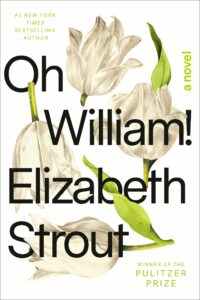
Elizabeth Strout, Oh William!
Random House, October 19
Elizabeth Strout excels at managing the balance of deep empathy and humor with no trace of sentimentality. I love spending time with her characters, and I love that she returns to them herself, unable to pull herself away from the inner lives she’s created. Such is the case with Oh William!, which features the Lucy Barton of a previous novel, returning herself to an ex-husband as he tries to uncover a family secret. –JG

Jane Goodall and Doug Abrams, The Book of Hope
Celadon, October 19
As a child of the ’80s, Jane Goodall is a Major Celebrity to me. And now the 87-year-old naturalist is back with advice on how I can feel hopeful despite, well, everything? That is soothing, folks. Sign me up. –ET
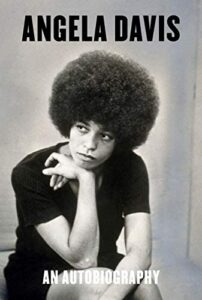
Angela Davis, Angela Davis: An Autobiography
Haymarket, October 19
One of the great activist autobiographies by one of this country’s greatest ever activists. First published and edited by Toni Morrison in 1974, An Autobiography (republished with a new introduction by the author) is an account of Davis’ incredible early years in the struggle: from her childhood on “Dynamite Hill” in Birmingham, Alabama, to her impassioned political activity in a New York high school; from her work with the US Communist Party and the Black Panther Party to her time on the faculty of the Philosophy Department at UCLA; from her visits with Fidel Castro to her appearance on the FBI’s Ten Most Wanted Fugitives list—and all before she was thirty years old. Davis is a living legend, one of the inspirational public figures of the last century, and this iconic portrait of the revolutionary as a young woman will remind you why. –DS
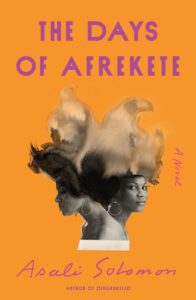
Asali Solomon, The Days of Afrekete
FSG, October 19
All I really needed to know to anticipate this one was that it was a novel about female friendship and women at midlife, inspired by both Mrs Dalloway and Sula, two of the best books ever written on any subject. But also, Liz Moore called it “a masterwork that shines a spotlight on what is troubling, uncomfortable, and hilariously funny about our present moment in time,” and wrote that it “seems at first like a blistering send-up of an upper-middle-class dinner party, expands into strangeness and beauty and a meditation on the meaning of life.” This is my kind of book, no matter how you slice it. –ET
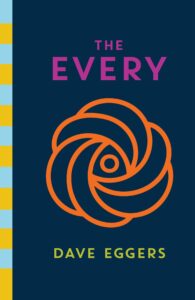
Dave Eggers, The Every
Knopf, October 19
Eggers takes his probing social criticism-via-the-novel approach to the all pervasive world of social media, as we follow the deeply tech-averse Delaney Wells’ attempt to take down the eponymous surveillance corporation from within. Extra plaudits to Eggers for making the difficult IRL decision to not sell his new book in hardcover on Amazon (it will be available only at independent bookstores). –JD
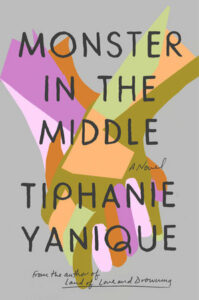
Tiphanie Yanique, Monster in the Middle
Riverhead, October 19
This novel by the author of 2014’s Land of Love and Drowning centers on a Black American man named Fly and a Catholic science teacher from the Caribbean named Stella. This love story spans decades and countries. Fly and Stella explore intimacy through a generational, historical and societal lens. As RuPaul famously (and wisely) said, “If you can’t love yourself, how in the hell you gonna love somebody else?” –VW
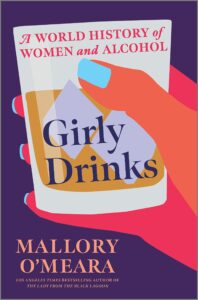
Mallory O’Meara, Girly Drinks: A World History of Women and Alcohol
Hanover Square Press, October 19
Mallory O’Meara, the LA-based author of the absolutely delightful 2019 Hollywood biography The Lady from The Black Lagoon: Hollywood Monsters and the Lost Legacy of Milicent Patrick, returns to the realm of historically overlooked women who did extremely cool shit with a feminist history of drinking through the ages. In Girly Drinks, O’Meara gives us with the untold history of the female distillers, brewers, and imbibers who played a crucial role in the evolution of alcohol as we know it today—from ancient Sumerian beer goddess Ninkasi to the iconic 1920s London bartender Ada Coleman. Booze History is one of my favorite historical sub categories, so I’ll be gulping this one down in the fall. –DS
Alex von Tunzelmann, Fallen Idols: Twelve Statues That Made History
Harper Book, October 19
The last few years has seen the world (well, the conquering, colonial world) confront its own might-makes-right approach to history, particularly in the way we commemorate it via statues of “great” men: never before in human history have so many people had strong opinions about statues. Enter Alex Von Tunzelmann and his engrossing history of twelve statues: why they went up, how they were seen, and, importantly, the reasons they came down. This book will help you win that fractious Thanksgiving argument with your crotchety uncle. –JD
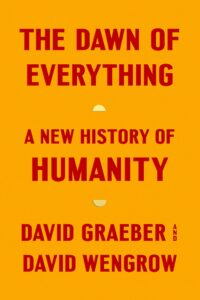
David Graeber, David Wengrow, The Dawn of Everything: A New History of Humanity
FSG, October 19
We recently lost anarchist-historian-anthropologist David Graeber far too early. A terrible thing, not least because his incisive, erudite histories of human nature are indeed more valuable to us now than ever, as we try to make sense of a world embroiled in questions about post-pandemic life and the ongoing depredations of global capitalism (to the human and natural worlds alike!). Graeber, writing here with David Wengrow, looks way back to the earliest forms of self-organization among human societies for clues as to how we might survive the coming decades. Seven-hundred pages you should definitely make time to read. –JD
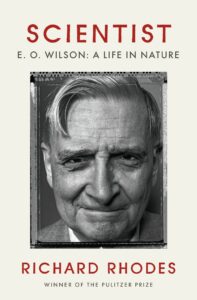
Richard Rhodes, Scientist: E. O. Wilson: A Life in Nature
Doubleday, October 19
Historian and author Richard Rhodes has written more than two dozen books on crucial moments and movements in American history—including, among his numerous books on nuclear power, the Pulitzer- and National Book Award-winning The Making of the Atomic Bomb (1986). Now, he looks at the life of legendary scientist E. O. Wilson, whose early interest in ant life led to a long, varied career as a leader in the biological sciences. Wilson’s life and substantial accomplishments—many have called him the “natural heir” to Darwin—are ripe topics for exploration, and particularly important as we continue to confront the climate crisis’ effects on biodiversity. –CS

Mark McGurl, Everything and Less: The Novel in the Age of Amazon
Verso, October 19
When we talk about the “Internet novel” we tend to mean a heady, almost manic narrative that mirrors our toxic and addictive relationship to social media. But what if the very means of distribution—overwhelmingly Amazon—is the thing that is changing most how we write novels? As Mark McGurl suggests in this deep dive into the ubiquitous reach of “the world’s biggest bookstore,” in the age of Amazon, “every novel is a genre novel.” Shudder. –JD
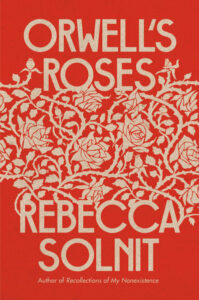
Rebecca Solnit, Orwell’s Roses
Viking, October 19
Did you know George Orwell was a gardener? I certainly did not. But apparently the great political theorist and observer had quite the green thumb. The fact that it was Rebecca Solnit who stumbled upon the roses he planted in 1936 (!) feels sort of perfect to me. The author of Men Explain Things to Me and A Field Guide to Getting Lost has a knack for making surprising and poignant connections between seemingly disparate things. Her latest is about the Orwelll’s love for the natural world and how it ran parallel to his dedication to antifascism. This is sure to be another expansive look at politics, power, beauty, and the stories we tell ourselves. –KY

Domenico Starnone, tr. Jhumpa Lahiri, Trust
Europa Editions, October 19
Italy’s inimitable Domenico Starnone (Ties, Trick) returns with Trust, a story with a setup that had me at hello: in a last-ditch attempt to save their relationship, Teresa decides that she and Pietro should share their most shameful secret with each other—something they’d otherwise never tell a soul. Then they break up. As they go on about their lives and Pietro falls in love with someone else, he can’t stop thinking about Teresa—or maybe, more pressingly, his confession. I suspect that the secret itself is a secondary concern to the couple’s story, but either way, I’m already dying of suspense. –ES
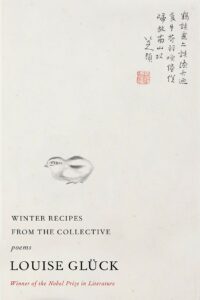
Louise Glück, Winter Recipes from the Collective
FSG, October 19
More than a decade before she won the Nobel Prize, Louise Glück declared she was never aiming for a particularly wide readership, telling The New York Times, “To the degree that I apprehend acclaim, I think, ‘Ah, it’s a flaw in the work.’” Her poems are challenging, filled with the intellectual wanderings and unexpected diversions that mark her unique approach to the most complex subjects of human life. She brings this inimitable poetic style to her thirteenth collection, which touches on mortality, grief, art, and other areas open to Glück’s poetic expression. –CS
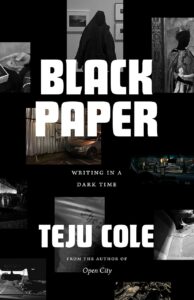
Teju Cole, Black Paper: Writing in a Dark Time
University of Chicago Press, October 22
This essay collection from Teju Cole seeks to consider “what it means to sustain our humanity—and witness the humanity of others—in a time of darkness.” Cole is a master at this form, and I’m sure this new work will explore Blackness and the nuances of Black identity with transformative wisdom. –VW
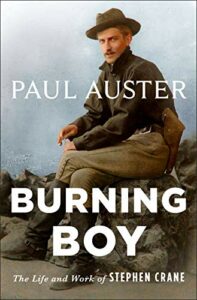
Paul Auster, Burning Boy: The Life and Work of Stephen Crane
Henry Holt, October 22
This action-packed biography tells the story of Red Badge of Courage author Stephen Crane, whose war reportage, journalism and fiction transformed American literature all before his death at twenty-eight. It’s a story of an extraordinary life, but also a reflection on Crane’s creative process—an analysis of one of the greats from another master of the craft. –WC
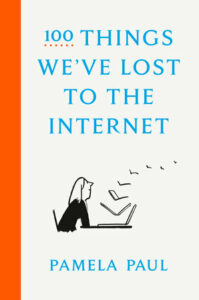
Pamela Paul, 100 Things We’ve Lost to the Internet
Crown, October 22
As someone who spends a vaguely nauseating amount of time on the internet, the feeling that tiny but essential bit of myself are being torn off me and sucked into its depths is constant. 100 Things We’ve Lost to the Internet is both ode and guide—an ode to what we’ve lost and a guide to reclaiming pieces of the analog world. It sounds like the perfect thing to read in hard copy. –JG
Josh Cohen, How to Live. What to Do: In Search of Ourselves in Life and Literature
Pantheon, October 22
Yes, yes, we tell stories in order to live, but we definitely also READ THEM in order to survive. Or so thinks psychoanalyst and literature professor Josh Cohen (not the novelist). In this wide-ranging, cradle-to-grave survey of beloved classics, ranging from Lewis Carroll to James Baldwin to Kazuo Ishiguro, Cohen makes the case for fiction as a crucial aid to introspection, suggesting that our ability to see ourselves in literary characters runs parallel to the all-important ability to see ourselves. –JD
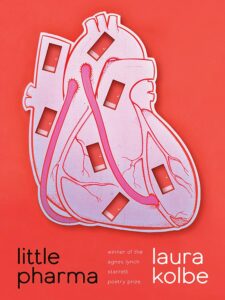
Laura Kolbe, Little Pharma
University of Pittsburgh Press, October 26
This first book of poems by writer, doctor, and medical ethicist Laura Kolbe is vital and urgent, tempered by wit and layered language. A lot of ground is covered in these poems—not only do we see the insides of hospitals, of doctor’s brains (“I am tired of playing / death’s white clerk // I will stand in the glove closet / eating an orange.”), of human bodies, but Kolbe evokes Lady Macbeth, Bill Traylor, Merle Haggard; this is a wry celebration of life in all its complex circuitry. –ET
NOVEMBER
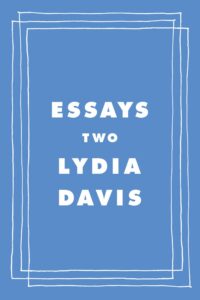
Lydia Davis, Essays Two
FSG, November 2
I think a good rule for living is always read Lydia Davis, so Essays Two is on my list for that reason alone. In this collection, Davis writes about translating Proust, Flaubert, and Michel Leiris, learning languages, and the city of Arles. Davis on writing is generous and specific in a way that reveals how much smarter she is than almost everyone without being the least bit alienating. I can’t wait to read her on translation. –JG
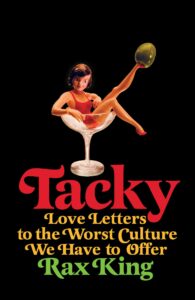
Rax King, Tacky: Love Letters to the Worst Culture We Have to Offer
Vintage, November 2
Just what it says on the tin: an essay collection that celebrates everything terrible that you secretly kind of love. That means Guy Fieri, the Cheesecake Factory, Creed (really, Creed???), and the one and only Hot Topic, and lots of other crap. Of course, King uses all this early 2000s effluvia to write about human connections and relationships, weighing all the nostalgic fun down with real substance and very good writing. –ET
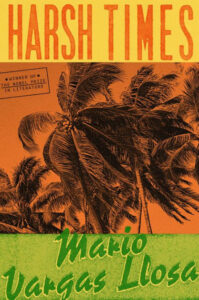
Mario Vargas Llosa, tr. Adrian Nathan West, Harsh Times
FSG, November 2
Maria Vargas Llosa is a master of an impossibly wide breadth of genres (and has the Nobel to prove it), but as The Feast of the Goat, his 2000 novel about the downfall of the Trujillo regime, revealed, he especially thrives in the political. Harsh Times is set amid the political turmoil of 1950s Guatemala, when a CIA-backed coup topples the government of Jacobo Árbenz. I can’t wait to tear through it and spend the next few months seething at the Eisenhower administration. –JG
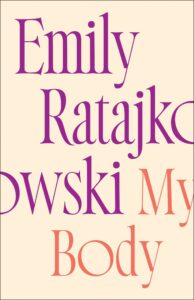
Emily Ratajkowski, My Body
Metropolitan, November 2
I don’t usually go in for celebrity memoirs, much less celebrity essay collections, but turns out that model and feminist Emily Ratajkowski is a really good writer. Lucky for us, then, that she spent her quarantine putting together this collection of essays, which her publisher calls “a profoundly personal exploration of feminism, sexuality, and power, of men’s treatment of women and women’s rationalizations for accepting that treatment.” Looking forward to reading more from her. –ET
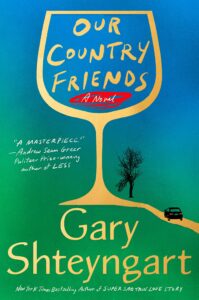
Gary Shteyngart, Our Country Friends
Random House, November 2
One of the first true “pandemic novels,” from one of this century’s great humorists: Our Country Friends follows the shifting relationships of a group of friends (including a Russian novelist; an app developer; a K-pop-obsessed child; a Southern essayist) at a country house in upstate New York in March 2020 as they wait out the COVID-19 pandemic. I’m curious how Shteyngart tackles COVID-19, and uncomplicatedly excited for what promises to be a social satire with a hilariously bizarre ensemble cast. –WC
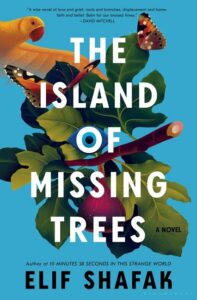
Elif Shafak, The Island of Missing Trees
Bloomsbury, November 2
From the prolific, Booker-shortlisted author of 10 Minutes 38 Seconds in This Strange World and The Forty Rules of Love comes a novel about forbidden love on the island of Cyprus, violence both literal and emotional, and the long tug of family history. –ET
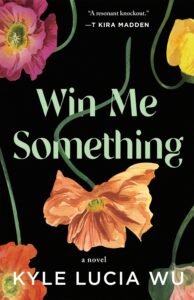
Kyle Lucia Wu, Win Me Something
Tin House, November 2
This quiet but piercing debut novel of identity and isolation from Asian American Writers’ Workshop Fellow Kyle Lucia Wu is the story of Willa Chen, a young biracial Chinese American woman from New Jersey who takes a job as a live-in nanny for a wealthy Tribeca family in the hope discovering the belonging and familial acceptance she’s always craved. Wu’s beautifully observed coming-of-age tale is a poignant and lyrical meditation on navigating the world with a fragmented sense of self. –DS
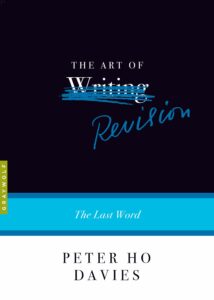
Peter Ho Davies, The Art of Revision: The Last Word
Graywolf, November 2
Like any earnest writing nerd, I love Graywolf’s Art of series, so I’m eager to pick up a copy of the latest, in which Peter Ho Davies tackles the mysterious art of revision. There will be drafts—from Carmen Maria Machado, plus Davies himself—dips into adaptations and retellings, and (I imagine) astute counsel that might make me feel less animosity toward the revision process. –ES
Michael Eric Dyson, Entertaining Race: Performing Blackness in America
St. Martin’s, November 2
As an academic, ordained minister, and author, Michael Eric Dyson has long offered his invaluable analysis of race and politics to the public consciousness through his writing and public speaking. Entertaining Race: Performing Blackness in America gathers some of his observations on these topics and more in an important work of criticism on identity, what it means to perform Blackness, and the history of American culture. –CS
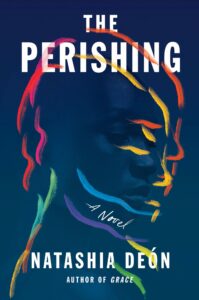
Natashia Deón, The Perishing
Counterpoint, November 2
Set against the backdrop of Depression-era Los Angeles, this novel evokes the storytelling prowess of Octavia Butler. A young Black woman named Lou wakes up in an alley with no memory of where she came from or how she got there. Lou tries to make the best of her unsettling circumstances and pursues an education. When she meets a firefighter at a downtown boxing gym, she’s shocked to realize that she’s known his face since the days of living with her foster family. Could Lou be immortal? And if so, why? –VW
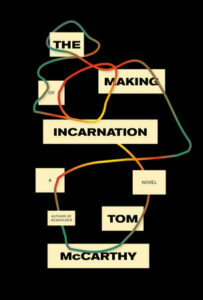
Tom McCarthy, The Making of Incarnation
Knopf, November 2
Unlike certain other (incorrect) members of the Literary Hub staff, I live for Tom McCarthy, in all his weird, cold, intellectual glory. The latest novel from the author of Remainder and C is “a high-tech odyssey through CGI studios, wind tunnels, and drone research centers, where the limits of healing, entertaining, revelation, and destruction are continually being transformed.” Which sounds exactly like what I want to read from him. Give it to me now. –ET
Lucille Clifton, Generations: A Memoir
NYRB, November 9
This year, NYRB is reissuing Generations, the prose memoir of Great American Poet Lucille Clifton. First published in 1976, and out of print since, the book traces the history of Clifton’s family, centering on its matriarch, Caroline, or Mammy Ca’line, who was “born free among the Dahomey people [in West Africa] in 1822 and died free in Bedford Virginia in 1910.” “These are the lives that America’s dominant history, as defined by aspirational notions of white personhood, has let fall into shadow,” writes Tracy K. Smith in the book’s new introduction. “These are the stories that have been left unmasked and untended by America’s preferred view of itself, like the graves of slaves on land passed down through the white generations.” But she has done more than just illuminate these lives. “Clifton’s purpose,” Smith writes, “is to teach us to see that we are, in fact, moving together and that we are, in fact, part of a large whole.” –ET
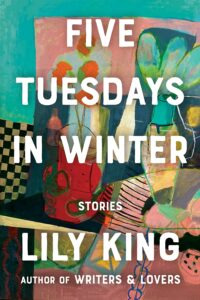
Lily King, Five Tuesdays in Winter
Grove, November 9
Last year, I pressed Writers and Lovers on pretty much everyone who said the word “book” to me, so I can’t wait to get my hands on Lily King’s first short story collection. King’s characters are gloriously human (neither self-conscious anti-hero nor everywoman relatability), and her prose is so deft that you almost don’t notice its beauty at first—it gets out of its own way. I look forward to inhaling this one. –JG
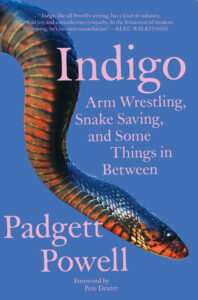
Padgett Powell, Indigo: Arm Wrestling, Snake Saving, and Some Things In Between
Catapult, November 9
Padgett Powell is a cantankerous delight who is unafraid to write exactly what he sees, and if he can’t quite see it, he’ll do whatever it takes to get a view. This collection of his nonfiction observations spans three decades of that looking and comes as advertised: Powell travels to Sweden for the world arm wrestling championships, searches for the endangered indigo snake in the wild, reflects on the importance of squirrel meat in a good gumbo, and delivers his honest opinions about writers like Denis Johnson, Flannery O’Connor, and William Trevor. –JD
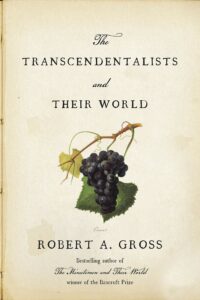
Robert A. Gross, The Transcendentalists and Their World
FSG, November 9
Robert A. Gross’ work brings extensive insight into the intellectual world and legacy of Concord, Massachusetts; his previous book The Minutemen and Their World focused on the city during the American Revolution, and now, The Transcendentalists and Their World examines how the area gave rise to one of the most impactful philosophical and literary movements in American history. Beyond the stories of some of transcendentalism’s most well-known thinkers, Gross looks at the ways in which the community’s relationship with politics, capitalism, and freedom of thought impacted the development of transcendentalism, giving a larger-picture historical view and valuable context for the movement. –CS

Jim Harrison, The Search for the Genuine: Selected Nonfiction
Grove, November 9
Jim Harrison was a gift: as a poet, as a novelist, as a food writer, as a presence. However you care to describe his compelling contradictions—gruff tenderness, gentle rancor—his writing was transporting, journeying far and wide through the wild lands of his own endlessly restless heart. Thankfully, we have many of those nonfiction works collected here for the first time, a compendium of reporting and criticism that covers the gamut of Harrison’s many passions, from grouse hunting to the beauty of Big Sky country to the poetry of Pablo Neruda. –JD

Mina Seckin, The Four Humors
Catapult, November 9
In Seçkin’s debut novel, Sibel returns to Istanbul to take care of her grandmother, study for the MCATs, and show off her blond American boyfriend. But instead she finds herself watching Turkish soap operas and relying on ancient medicine to treat her chronic illness. Artful, funny, unpacking both Turkey’s political unrest and Sibel’s family history, Seçkin (a former Lit Hub editorial fellow!) tells a beautiful story of family and secrets, and really, isn’t that the heart of all great fiction? –EF
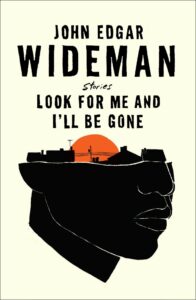
John Edgar Wideman, Look for Me and I’ll Be Gone: Stories
Scribner, November 9
Forty years on from the publication of his first book of short stories, two-time PEN/Faulkner Award for Fiction winner Wideman’s sixth collection “revisits themes that have infused his work for the duration of his career: family, loss, the penal system, Pittsburgh, physical and emotional life, art, and memory.” Wideman is known for producing harrowing experimental fiction that focuses on the Black experience in America and subverts out expectations of what stories can do, so expect to be shaken by these new tales, which span topics ranging from Michael Jordan to youth incarceration to the Atlanta child murders. –DS
Louise Erdrich, The Sentence
Harper, November 9
One of many of this fall’s heavy-hitting novelists with a book out, Erdrich follows up her 2020 Pulitzer Prize-winning The Night Watchman with this story of an Ojibwe bookseller grappling with the haunting of the very store she works in. As Tookie attempts to understand why the ghost of a former customer just won’t leave, she begins to come to terms with the life she could have had, and the life that still might be hers. –JD
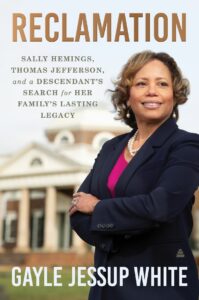
Gayle Jessup White, Reclamation: Sally Hemings, Thomas Jefferson, and a Descendant’s Search for Her Family’s Lasting Legacy
Amistad, November 16
When we study American history and the genesis of our democracy, too many people still seem to downplay the Founding Fathers’ involvement in the country’s brutal legacy of systemic racism, anti-Blackness, and segregation. Some scholars and history buffs treat Sally Hemings as a willing paramour of Jefferson, as though her enslavement were an inconsequential footnote. Gayle Jessup White, a Black descendant of Thomas Jefferson and Sally Hemings’ family, painstakingly unearths buried truths to reclaim her heritage. –VW
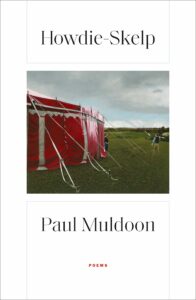
Paul Muldoon, Howdie-Skelp
FSG, November 16
Unlike novelists (sorry) it’s not hard to find poets writing their strongest work in their seventies—and so it is for Paul Muldoon, who enters his eighth decade in full voice. His latest collection ranges far in its choice of subject, from the experiences of our collective plague year to the loss of dear friends to the nature of art and seeing. One can only hope that Howdie-Skelp is the first of many to come from Muldoon over the next ten years. –JD
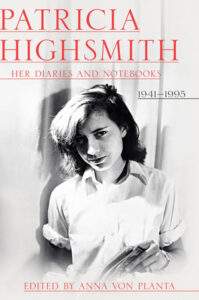
Anna von Planta, ed., Patricia Highsmith: Her Diaries and Notebooks: 1941-199
Liveright, November 16
Patricia Highsmith was a brilliant writer, and also she hated everyone. That is enough to make me want to read her diaries, which were discovered in the Swiss Literary Archives by her editor, who has explained that she never had any intention of blunting Highsmith’s venom, even when it was racist, misogynist, and antisemitic. “The idea was to show how Patricia Highsmith became Patricia Highsmith,” Von Planta told the New York Times. “And to have her tell about her life, her thoughts, her concerns, the making of her work, in her own words.” She was no hero—but she was a fascinating character, and this is the fullest picture of her we are likely to get. –ET
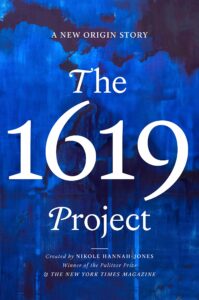
Nikole Hannah-Jones, ed., The 1619 Project: A New Origin Story
One World, November 16
Building off The New York Times Magazine’s 1619 Project issue, this collection edited by Nikole Hannah-Jones gathers over 50 essays, poems, and stories that not only refuse to let America gloss over its history of slavery but elucidates how that legacy still shapes every facet of our lives. Contributors include Kiese Laymon, Danez Smith, Jesmyn Ward, Terrance Hayes, Barry Jenkins, Claudia Rankine, and so many more. –ES
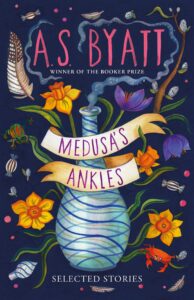
A.S. Byatt, Medusa’s Ankles
Knopf, November 23
This collection of stories selects the best short work from A.S. Byatt’s long career, introduced by David Mitchell. I only know Byatt through her wonderful novels, so I’m looking forward to reading her in short form. –ET
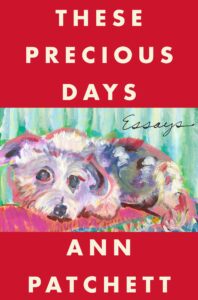
Ann Patchett, These Precious Days: Essays
Harper, November 23
Ann Patchett is a national treasure: novelist, bookstore owner, plumber of humanity’s collective heart. These collected essays, straddling life and art, are deeply personal and beautifully written. Included is the title essay, which appeared earlier this year in Harper’s, about her random, beautiful friendship with Tom Hank’s assistant; also the story about her father and her stepfathers that The New Yorker keeps spamming me with every few weeks on social media (I reread it every time!) From essays on Eudora Welty to knitting, this is a must-read collection. –EF
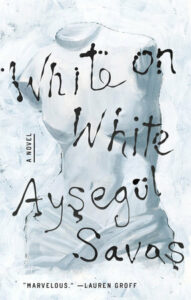
Aysegül Savas, White on White
Riverhead, November 30
I loved Savaş’s 2020 novel Walking on the Ceiling, and am astounded that we’re getting a second one from her so soon. White on White concerns a student, researching Gothic nudes, who rents an apartment from a painter who seems to be coming apart at the seams. If it’s anything like her insightful, incisive debut, it will be a true work of art. –ET
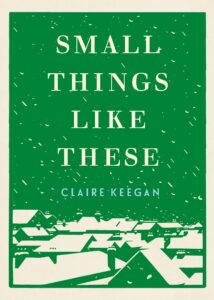
Claire Keegan, Small Things Like These
Grove Press, November 30
I was living in Dublin when Claire Keegan’s second collection, Walk the Blue Fields, was published to much acclaim. These were absolutely perfect stories—melancholy fictions that took place mainly in rural Ireland and absolutely full of life. A few years later, I was somehow, miraculously, publishing an anthology that included her prize-winning story “Foster,” a novella-length work that I reread as often as possible. This novel, which has all the trappings of a Claire Keegan story (small-town Ireland, a dark secret, a man with a burden to bear) is sure to be absolutely beloved by all who read it. –EF
DECEMBER
Robert Gottlieb, Garbo: Her Life, Her Films
FSG, December 7
Greta Garbo, who appeared in only 24 movies before deciding to stop working in Hollywood at the age of 36, left an indelible mark on the history of American film. Robert Gottlieb’s biography delves into what we can learn about her life and mind, with subjects ranging from her appearances on screen to pop-culture depictions of her—including, among other references, an appearance in For Whom the Bell Tolls—along with the details revealed in her private papers. –CS
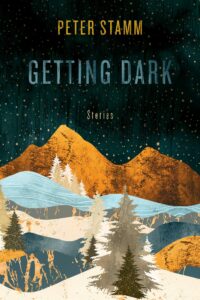
Peter Stamm, tr. Michael Hoffmann, Getting Dark
Other Press, December 7
Peter Stamm has been named “one of Europe’s most exciting writers.” His newest, powerfully unsettling short story collection catalogs moments when the familiar shifts into the unknown, when we realize how flimsy our constructed realties really are. –WC
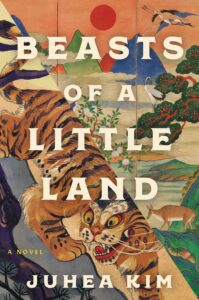
Juhea Kim, Beasts of a Little Land
Ecco, December 7
An immersive historical novel set in occupied Korea with a sweeping cast of characters whose lives intersect over half a century. There’s Jade and Lotus, who grow up training in a courtesan school; JungHo, a young boy who gets swept up in the resistance; and Japanese General Yamada, determined to maintain power. I’m looking forward to filling in my gaps about this period through what sounds like an engrossing story. (Also, that cover!) –ES
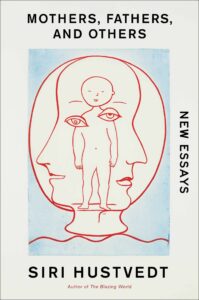
Siri Hustvedt, Mothers, Fathers, and Others: Essays
Simon & Schuster, December 7
Sign me up for a new Siri Hustvedt, especially a new Siri Hustvedt with this title and cover. Billed as feminist philosophy meets family memoir, which delves into “meanings of the maternal in a culture shaped by misogyny and fantasies of paternal authority,” it’s sure to be illuminating. –ES
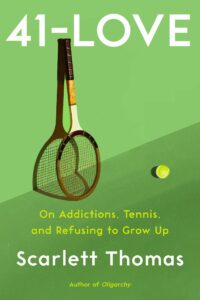
Scarlett Thomas, 41-Love: A Memoir
Counterpoint, December 7
I deeply enjoyed Scarlett Thomas’s 2019 novel, Oligarchy, so I was thrilled to hear she has a memoir out this year—and even more so to learn that it’s about… tennis. I mean, it’s not really about tennis, so much as it is about aging, the fragility of bodies, mid-life crises, fanaticism for new activities that we believe will save us from the existential reality of our lives, etc. etc. etc. Anyway, can’t wait! –ES
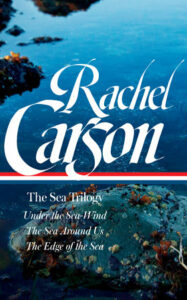
Rachel Carson, The Sea Trilogy
Library of America, December 7
The Library of America’s reissue of pioneering environmentalist Rachel Carson’s Sea Trilogy—Under the Sea-Wind, The Sea Around Us, and The Edge of the Sea—is a welcome honor for three nature writing classics. It’s also sadly timely in our moment of climate crisis. –WC
Tom Bissell, Creative Types: and Other Stories
Pantheon, December 7
In this new collection, short story master Tom Bissell trains his eye on the crises of, yes, creative types; from that of an eager movie star’s assistant to an employee at a prestigious literary journal, Bissell renders the internal and interpersonal struggles that come with art-making. Bissell co-wrote The Disaster Artist—so he knows his way around the subject. –WC

Francesco Pacifico, tr. Elizabeth Harris, The Women I Love
FSG, December 7
Marcello is attempting to write a novel about the women in his life, but those darn ladies are so multidimensional! Set in Italy and promising to subvert “the narrow ways canonical male writers gaze at, and somehow fail to see, women,” The Women I Love is quite likely to be a book I love. –ES
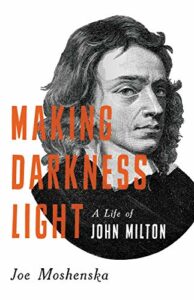
Joe Moshenska, Making Darkness Light: A Life of John Milton
Basic Books, December 7
This new biography doesn’t shy away from John Milton’s many contradictions. Oxford professor Joe Moshenska elegantly analyzes both Milton’s life from childhood on and his place in the Western canon today, demystifying a poet whose body of work has grown intimidating. –WC
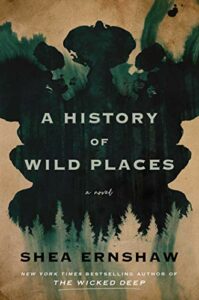
Shea Ernshaw, A History of Wild Places
Atria, December 7
Shea Ernshaw makes her adult debut with this atmospheric psychological thriller about fairy tales and shifting realities. Travis Wren is hired by families to locate missing people—but when he takes on the case of successful macabre children’s book author Maggie St. James and is led to a mysterious commune, what will the town do when he disappears himself? –WC
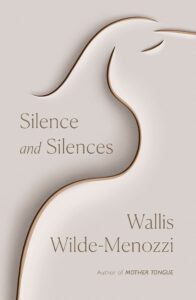
Wallis Wilde-Menozzi, Silence and Silences
FSG, December 7
“We need quiet to feel nothing, to hear silence that brings back proportion and the beauty of not knowing except for the outlines of what we live every day,” Wallis Wilde-Menozzi writes in Silence and Silences, an examination of the role of silence in our actions, relationships, and artistic worlds. This book promises to be a valuable record and tool for interpreting this under-explored area of life, especially after more than a year of a public health crisis that forced isolation, and unexpected silences, on so many of us. –CS
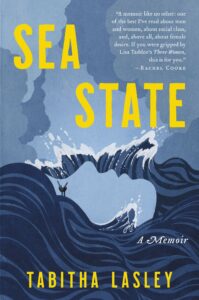
Tabitha Lasley, Sea State: A Memoir
Ecco, December 7
Tabitha Lasley wanted to write a book about oil rigs and the men who work on them. Then she began an affair with one of her early interviewees. Part journalism, part memoir, this debut looks outward at masculinity, class, and desire in an overlooked industry—and inward at Lasley herself. –WC










